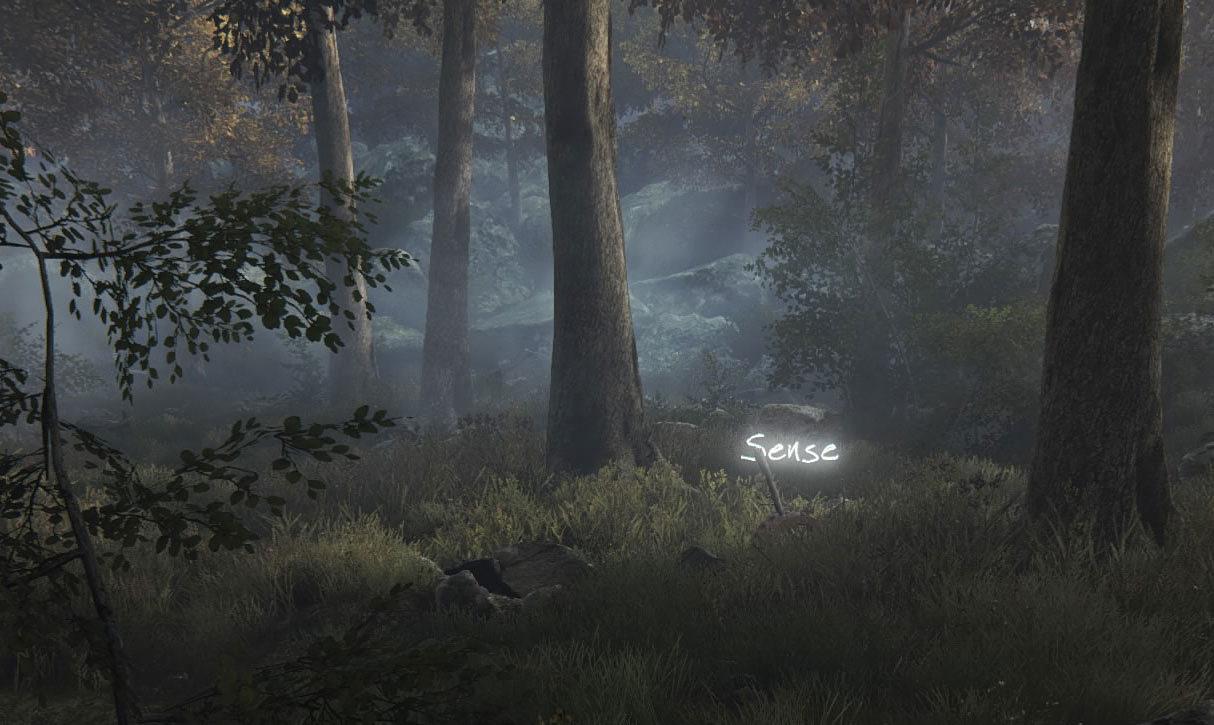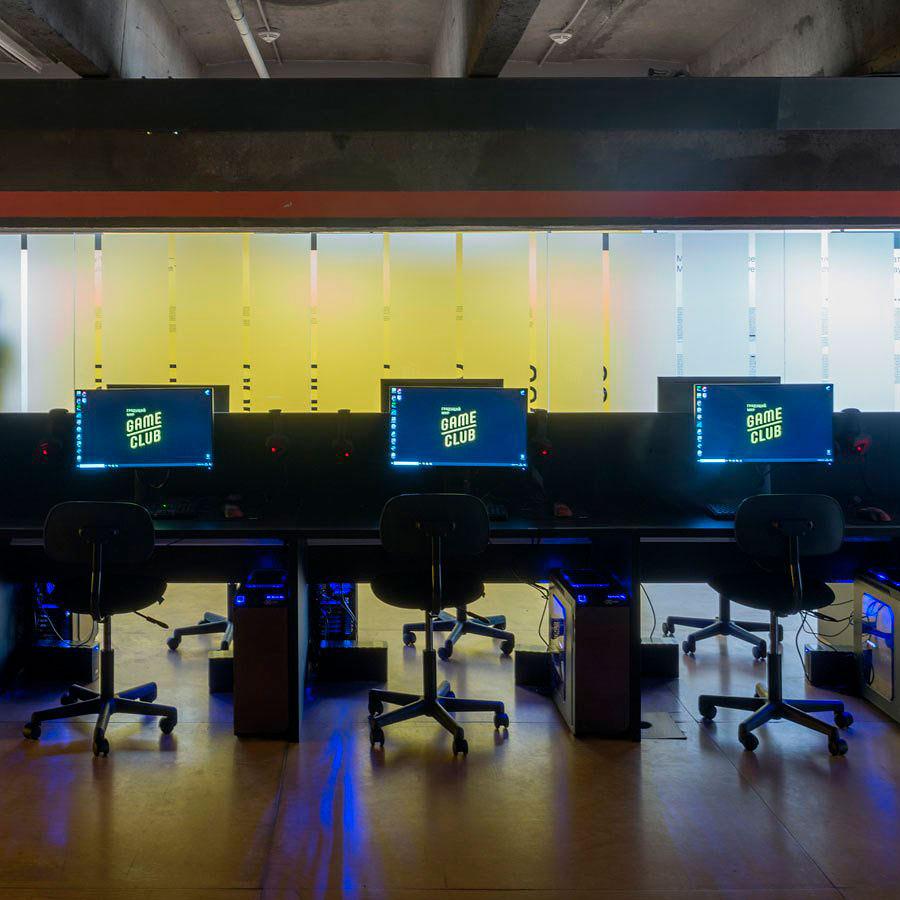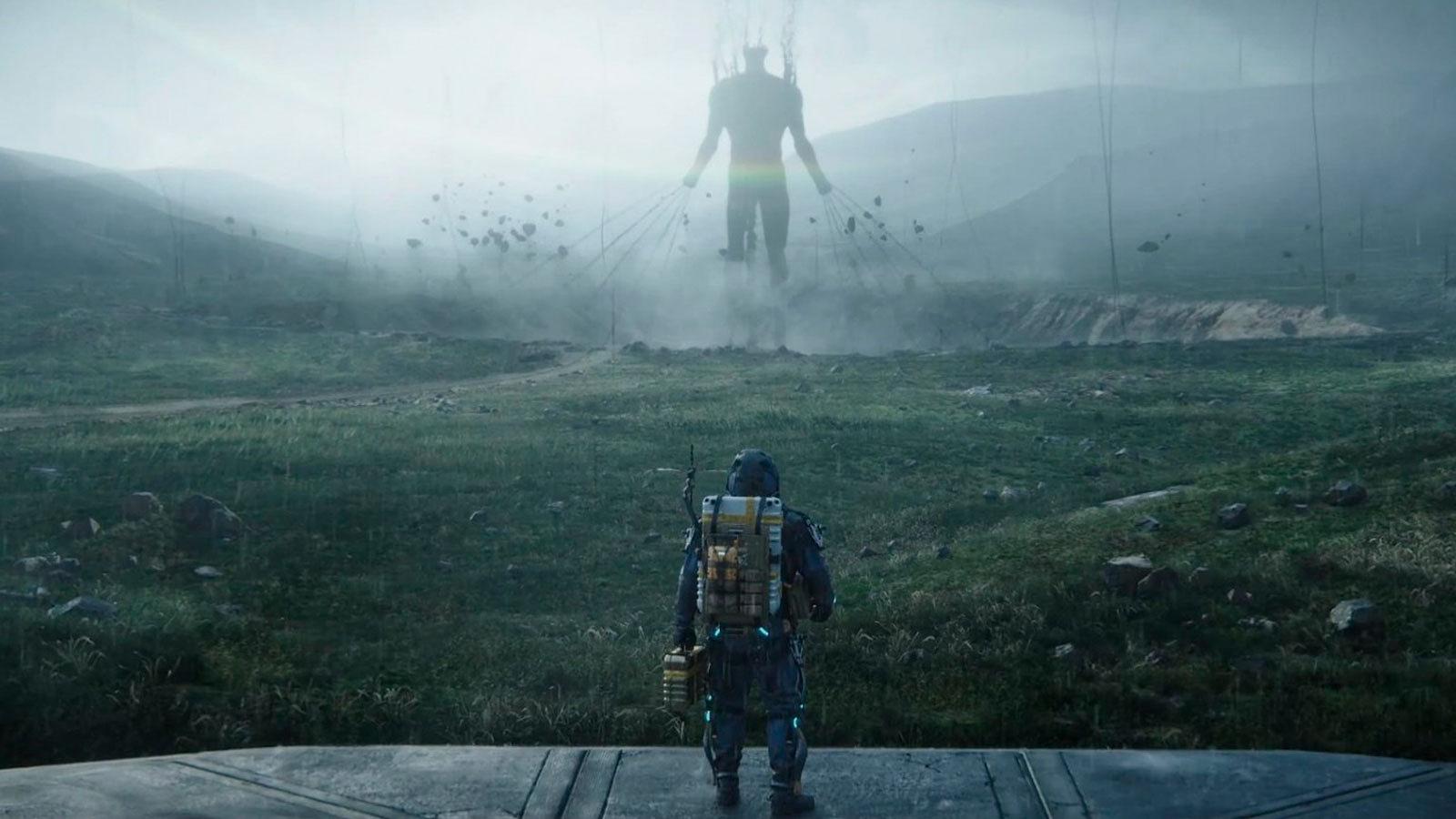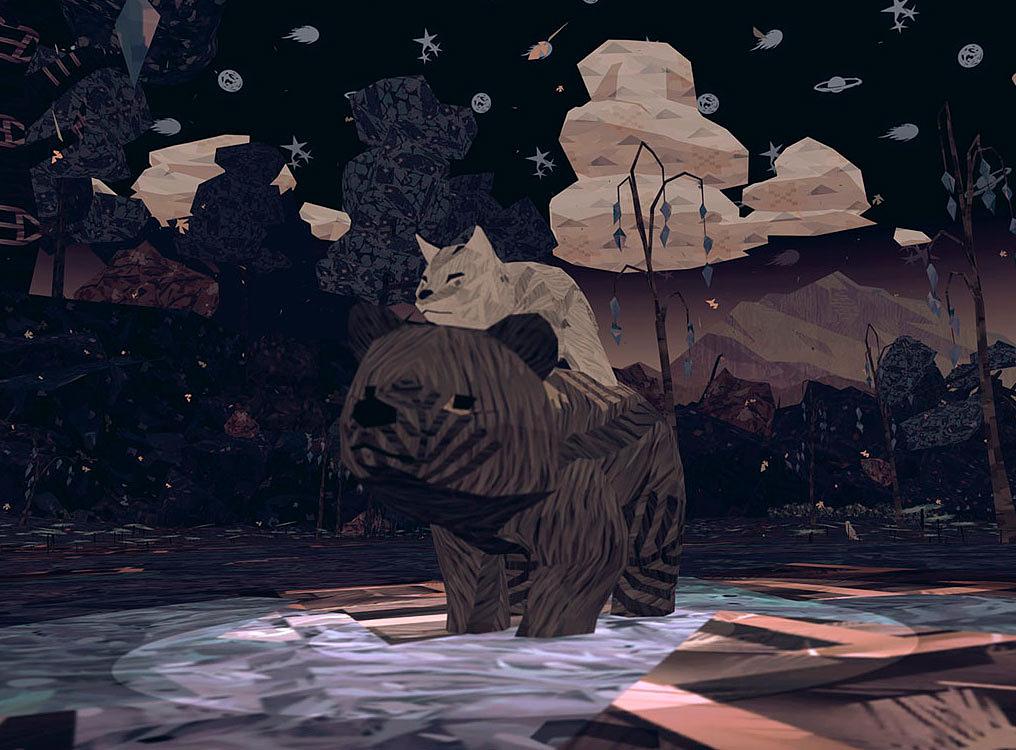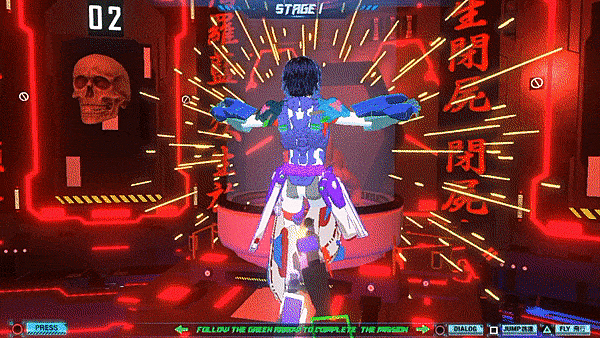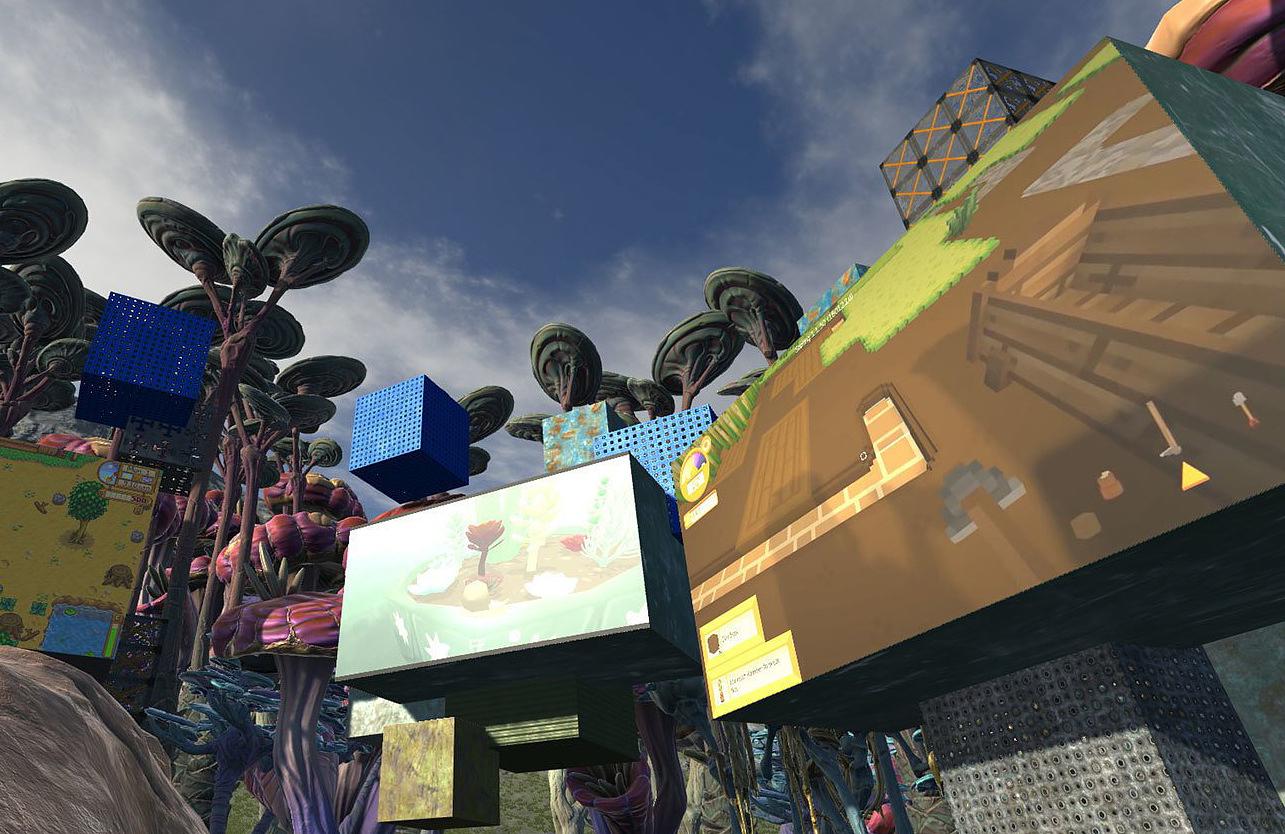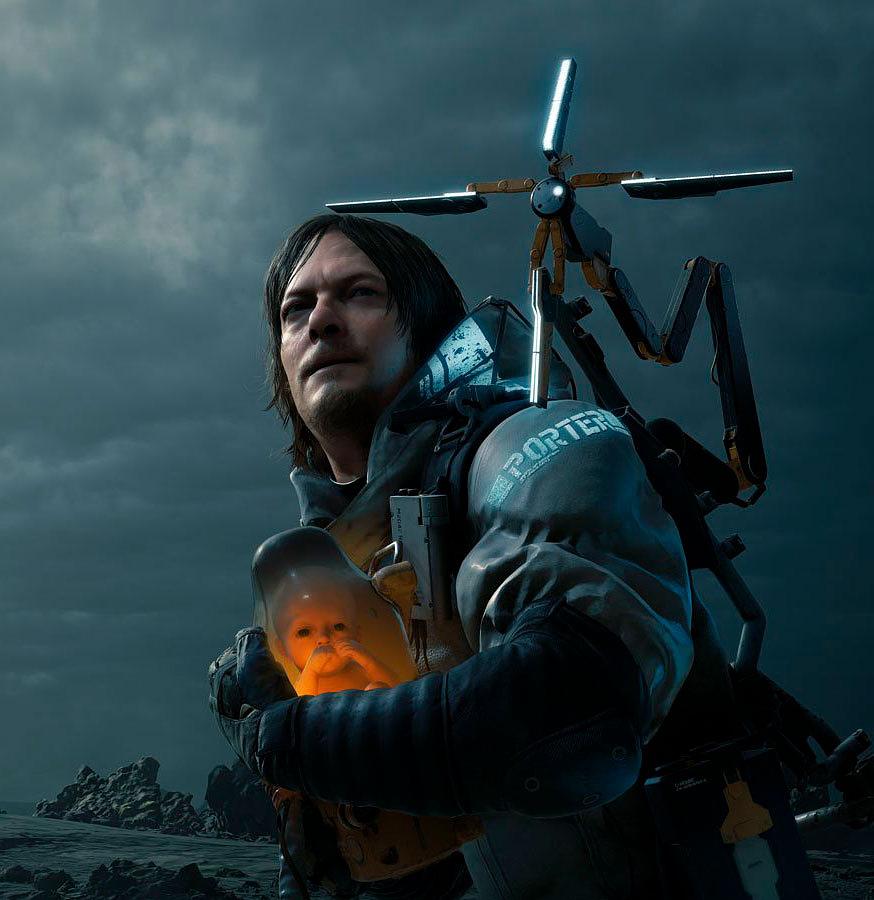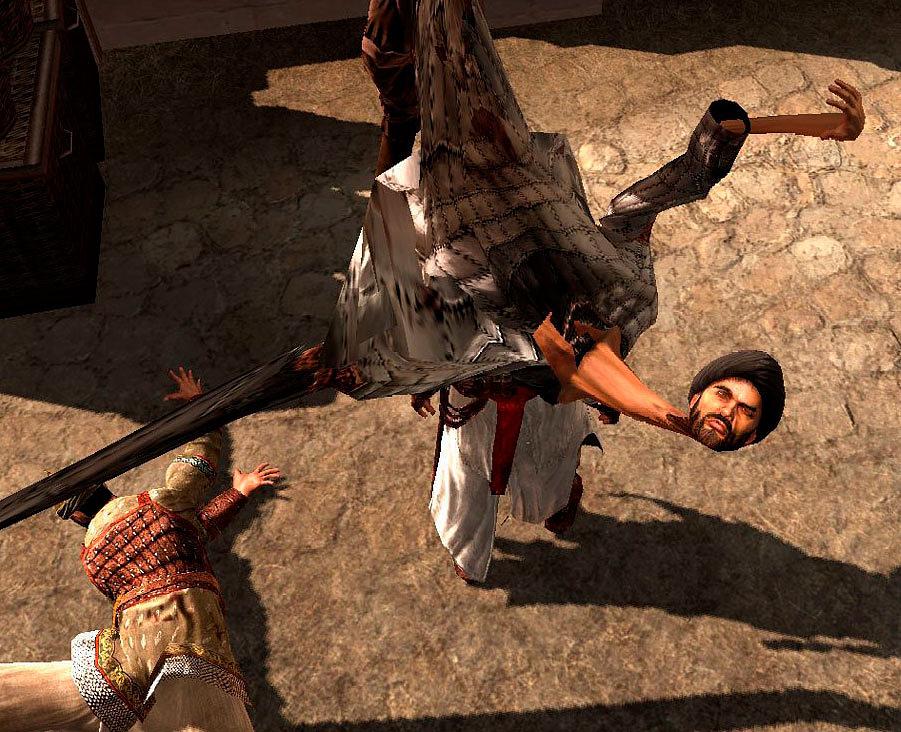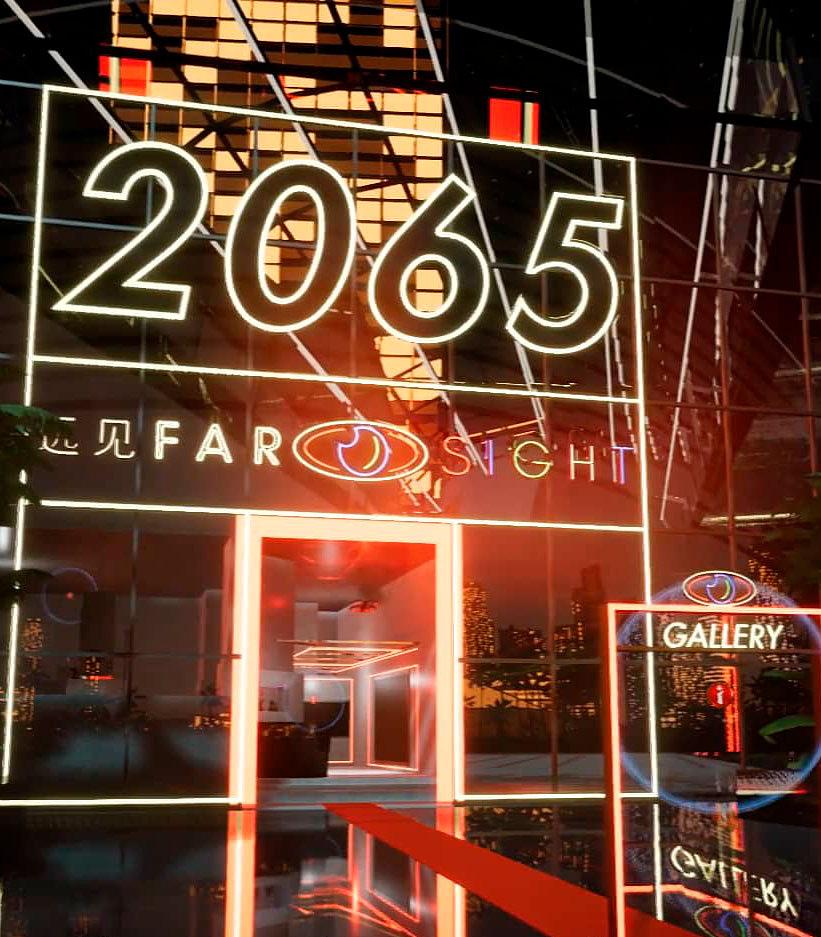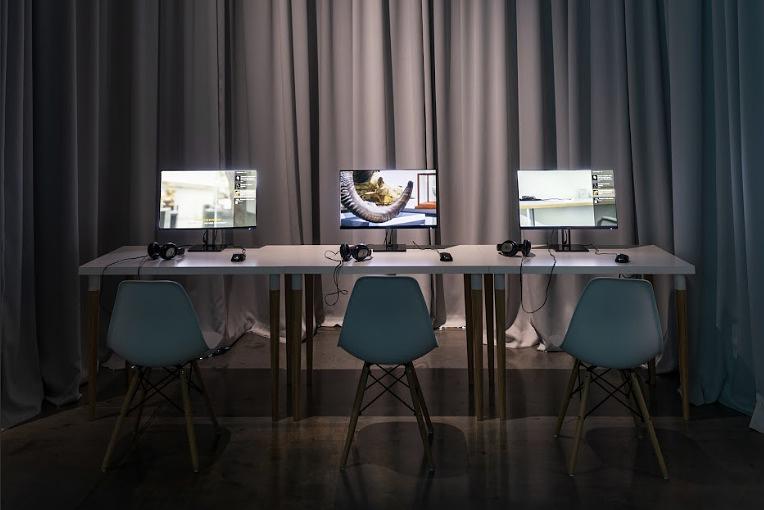
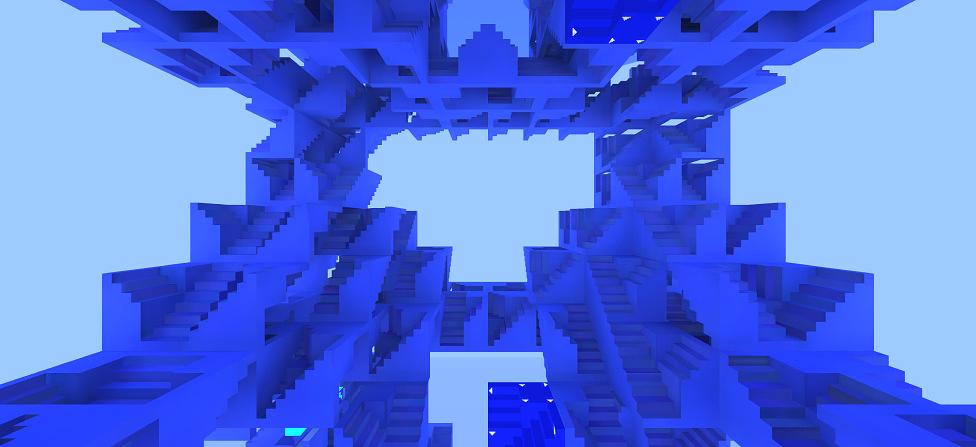
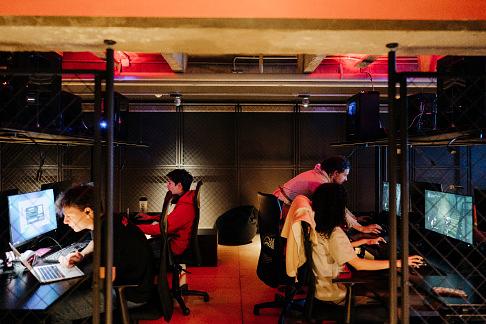
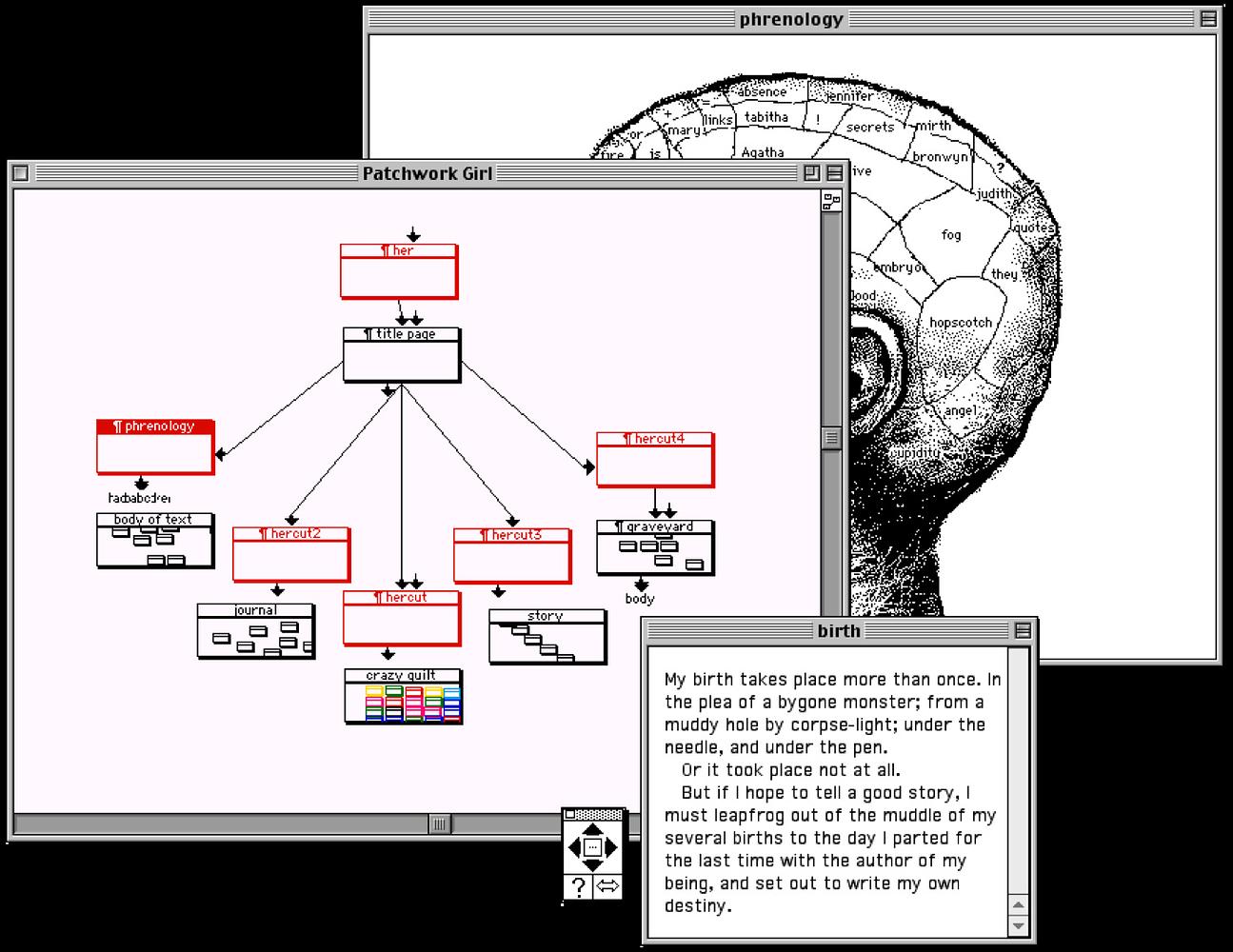
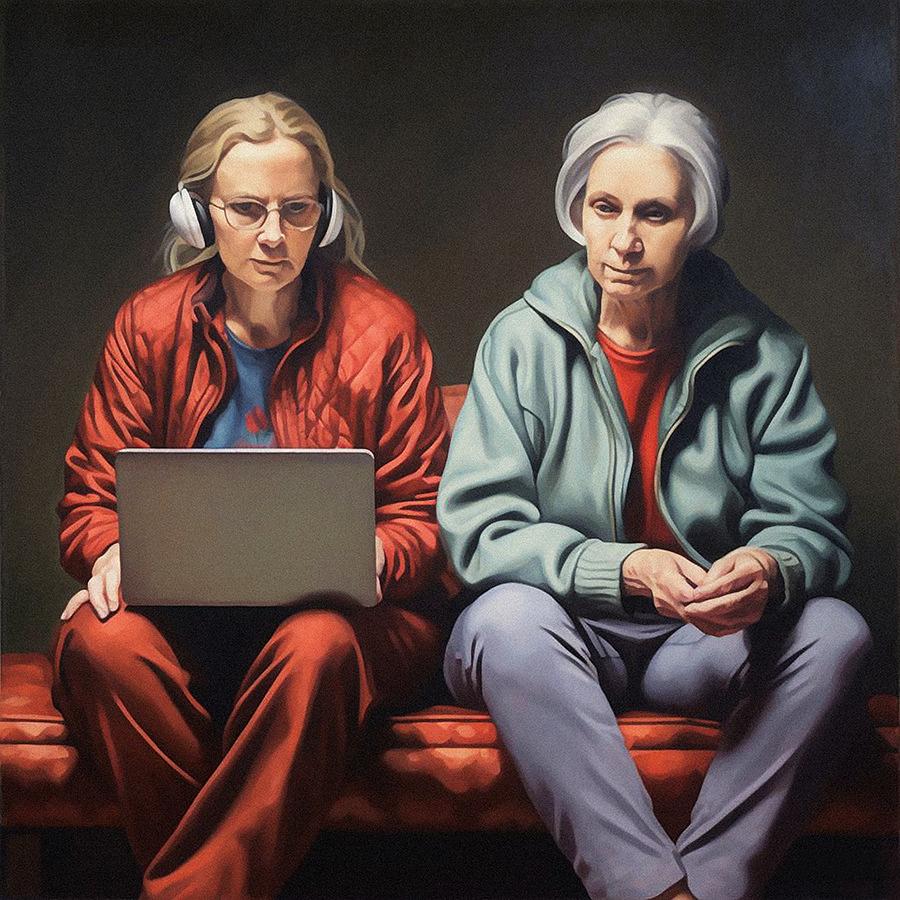
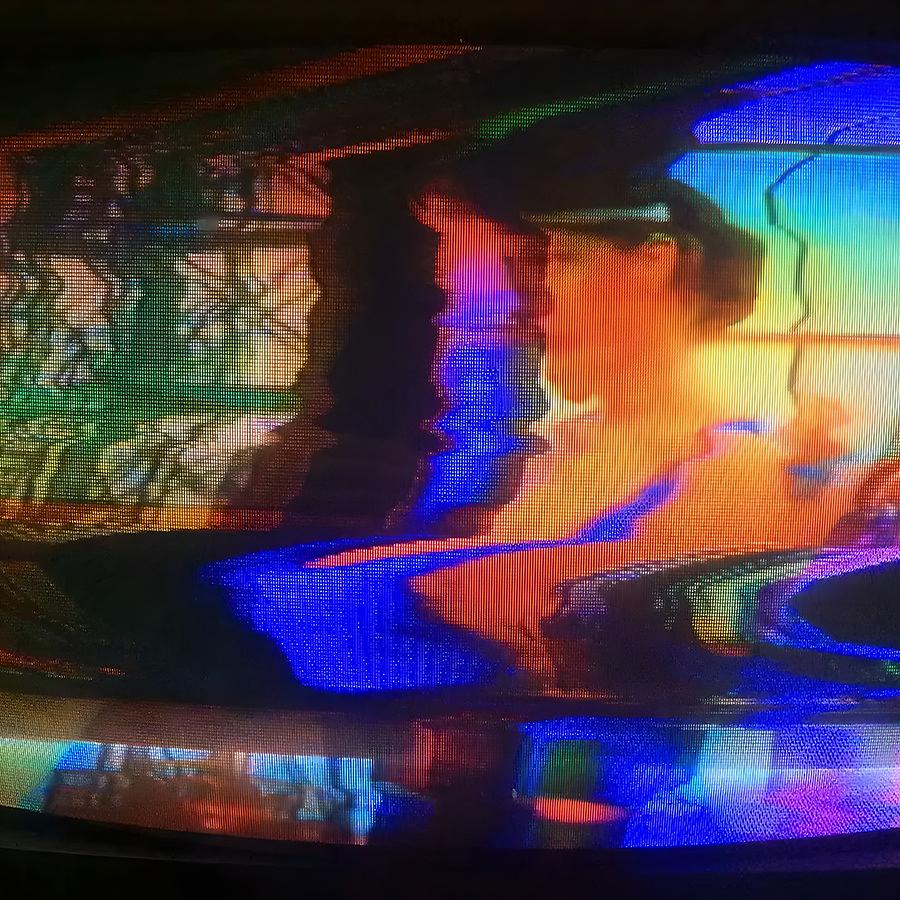

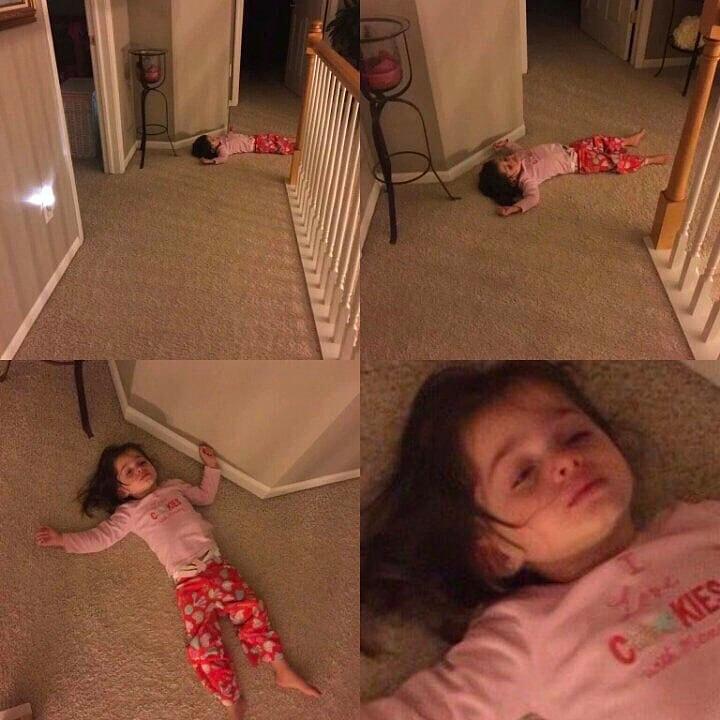
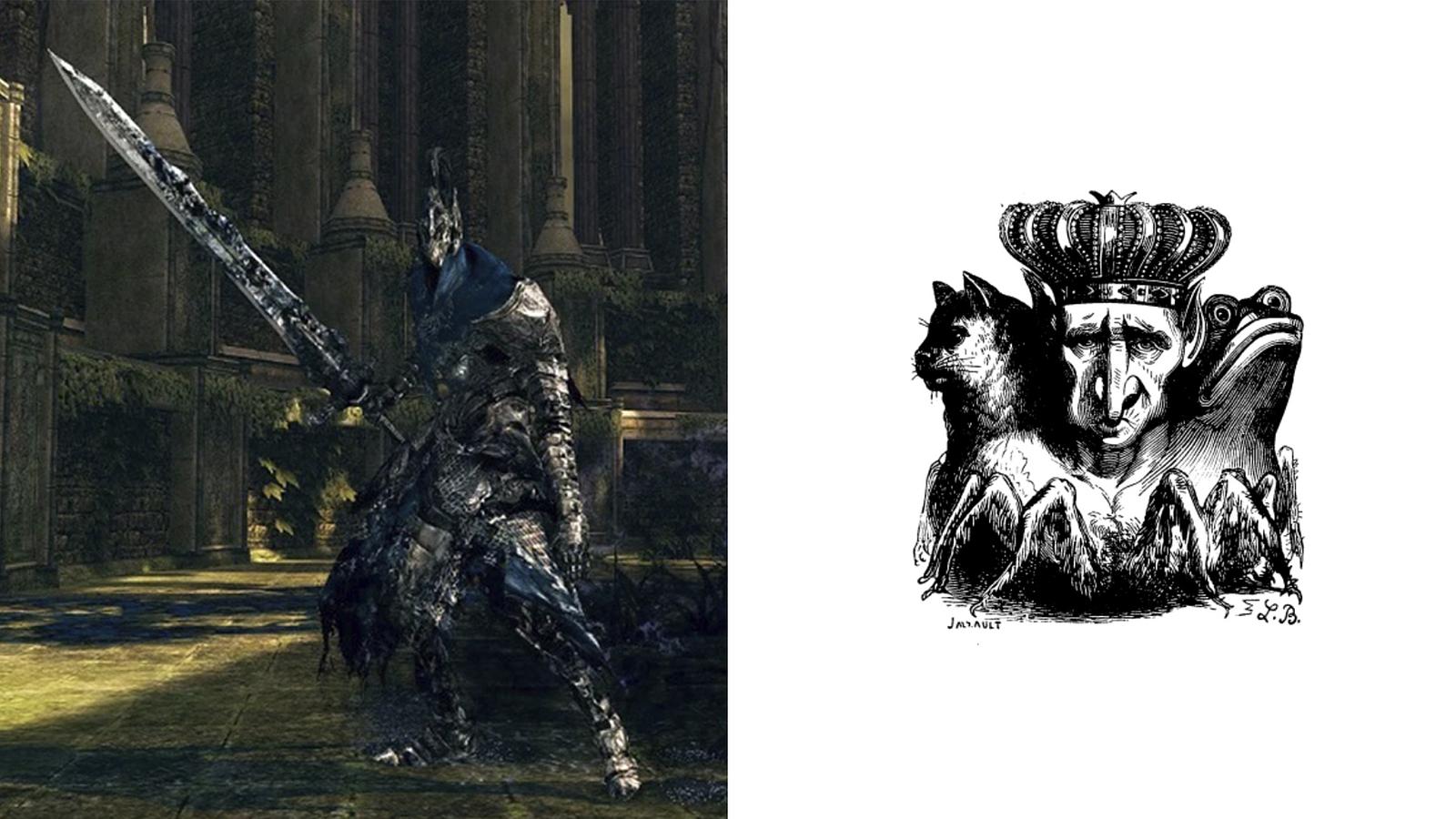
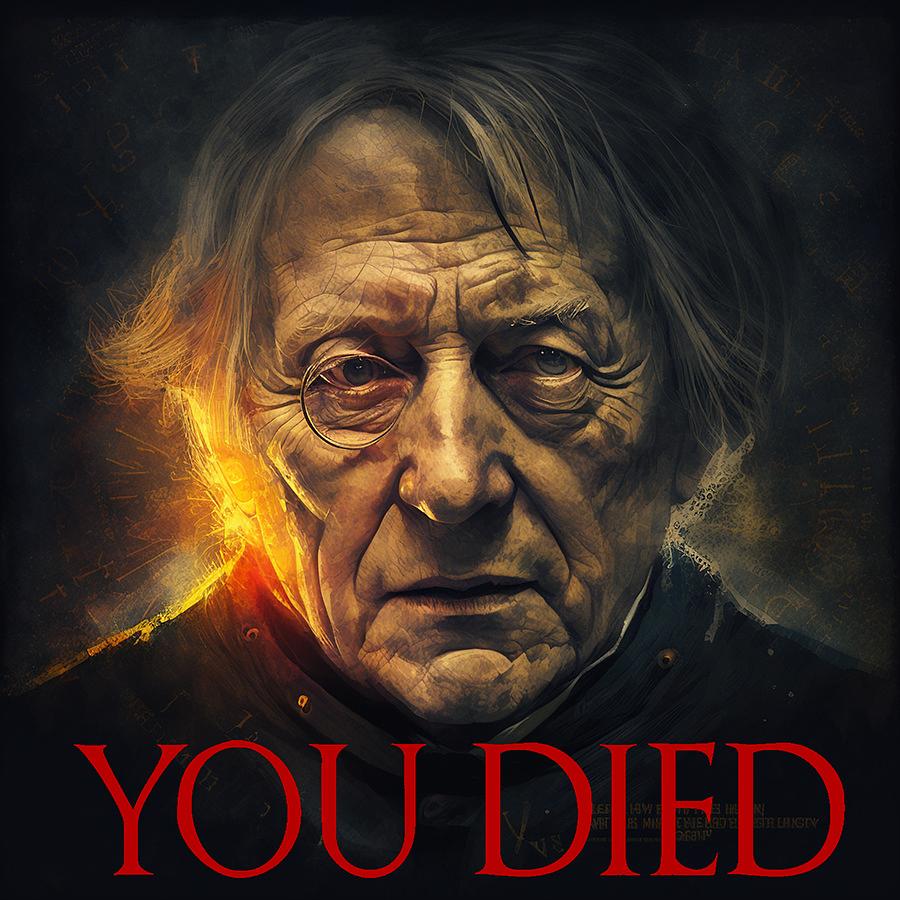
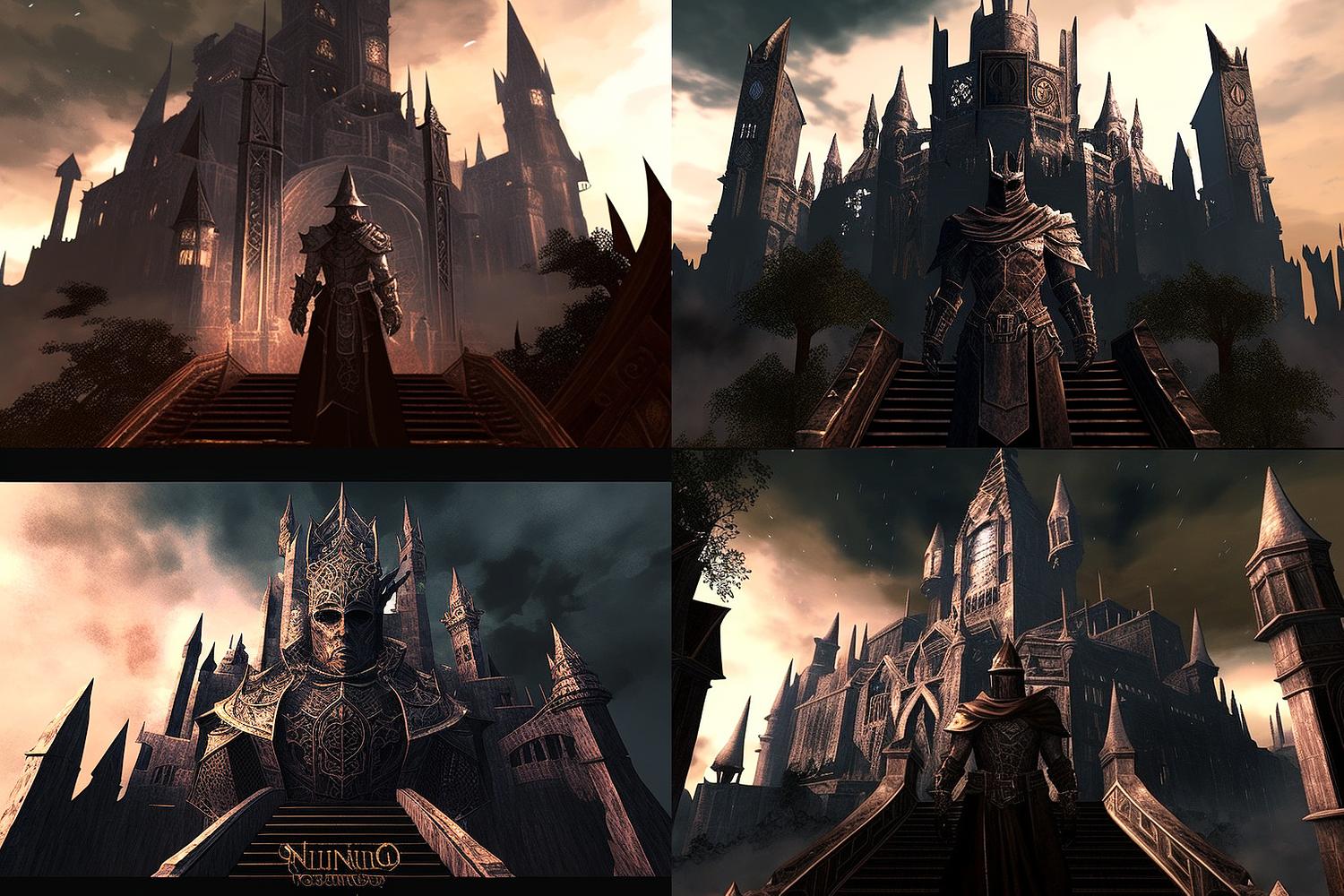
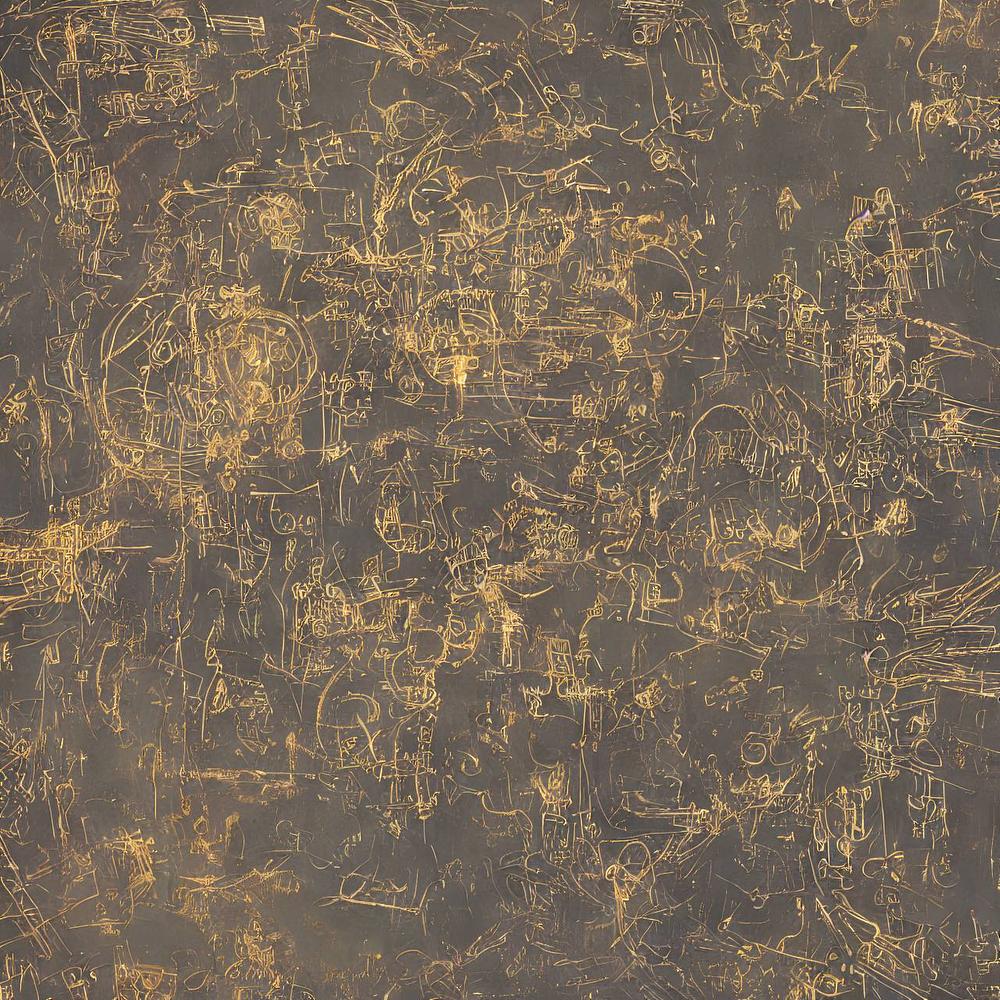
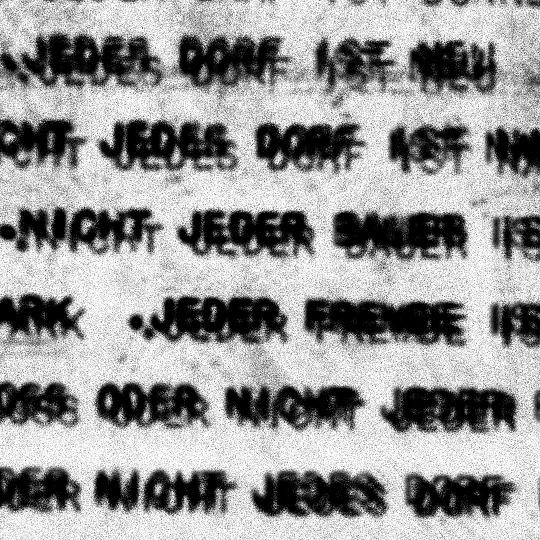

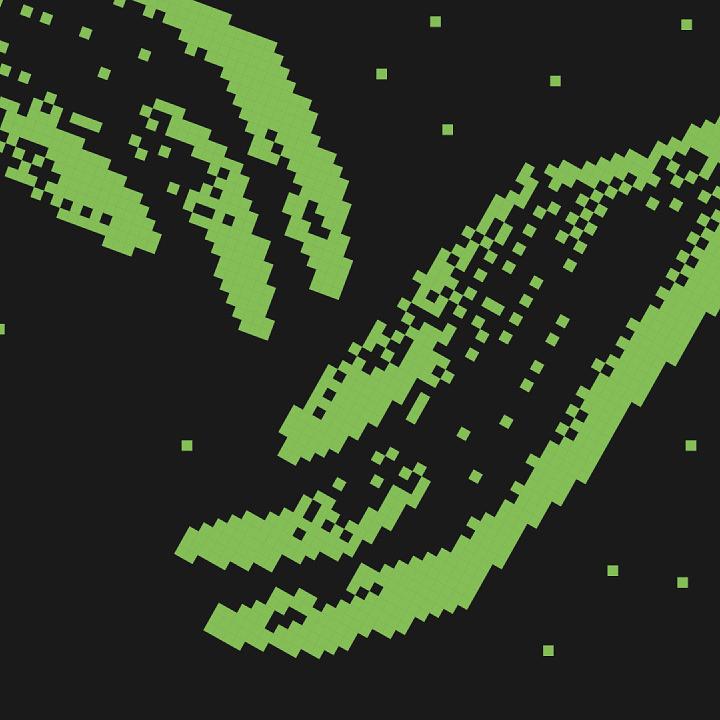
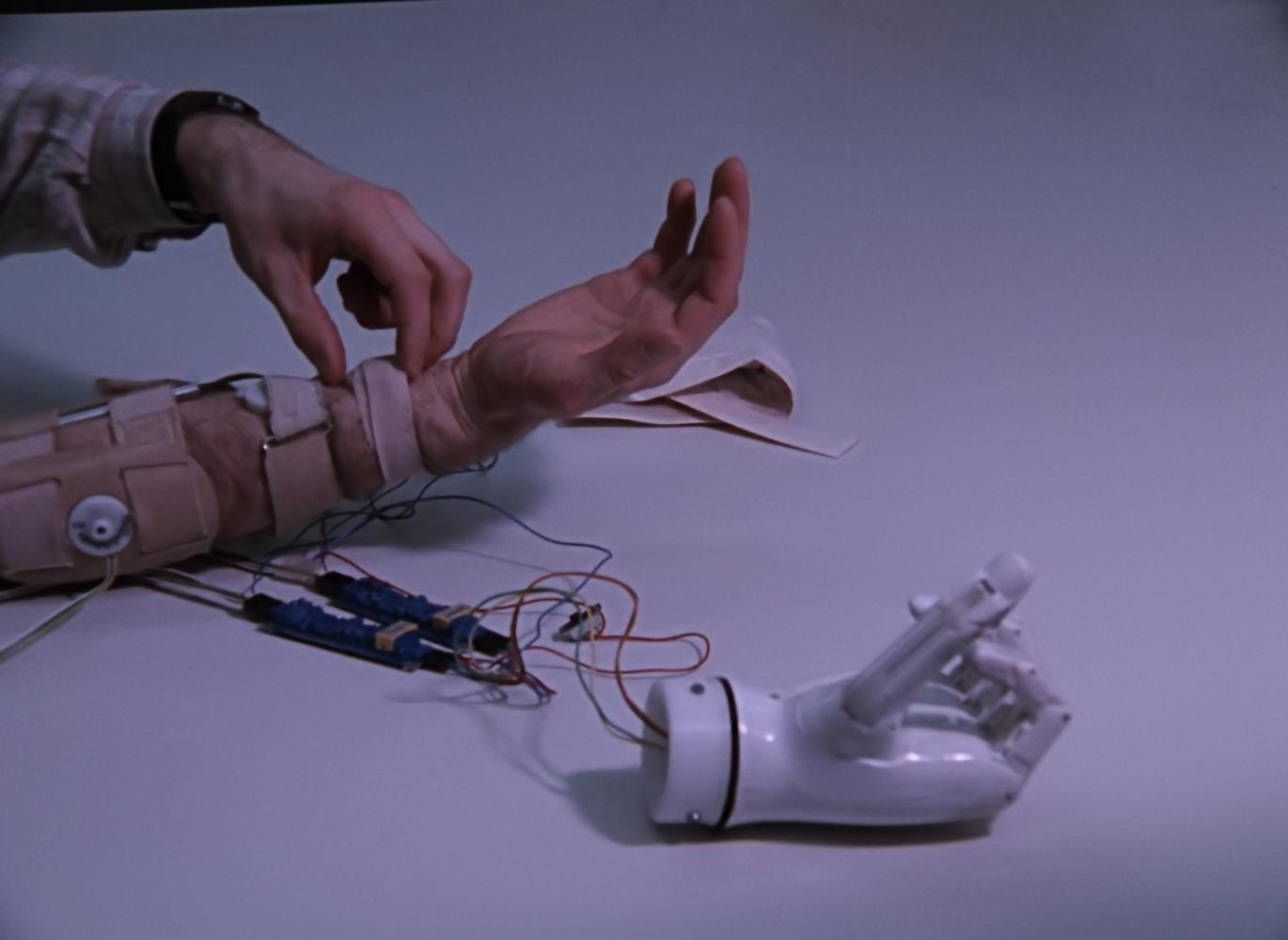
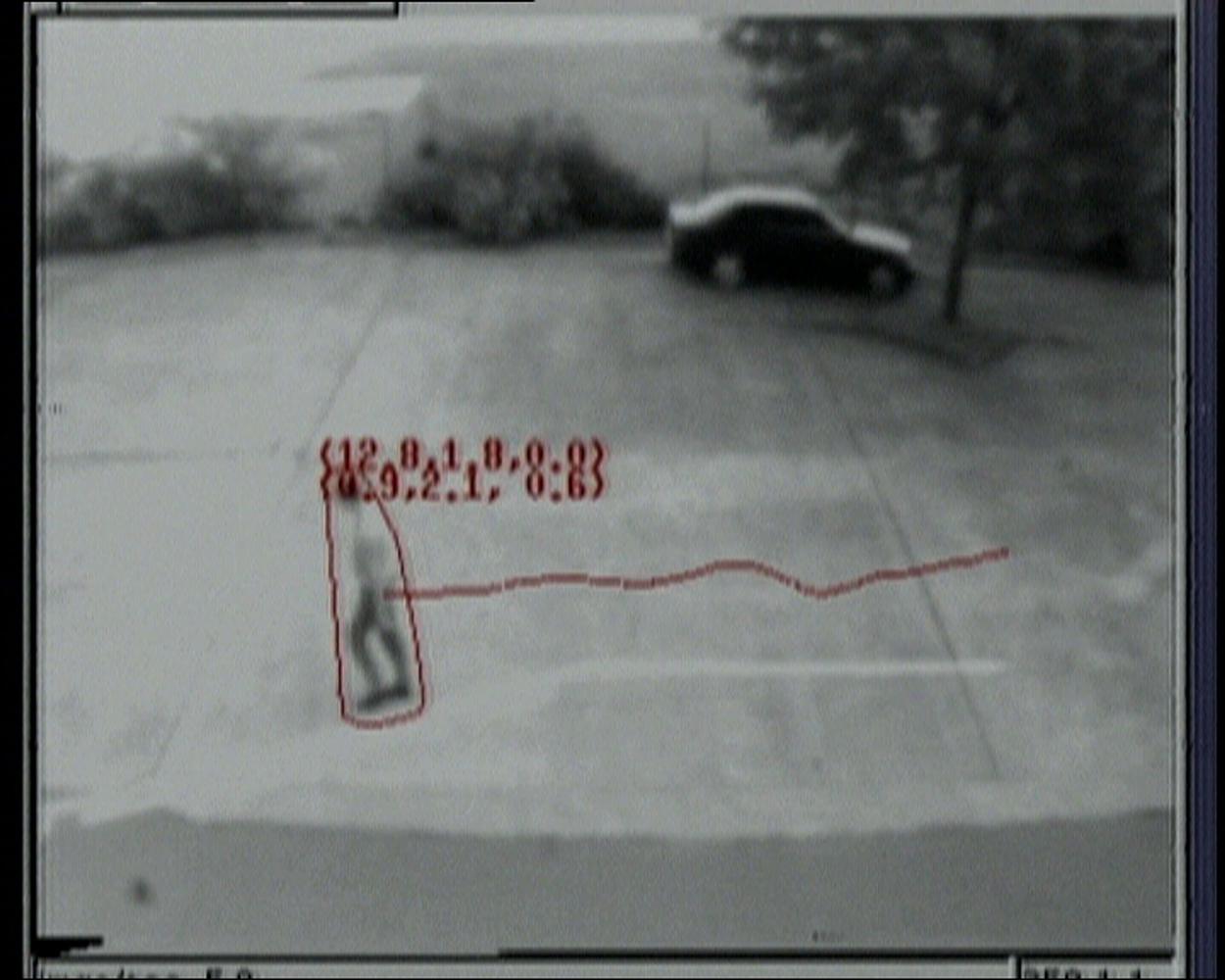
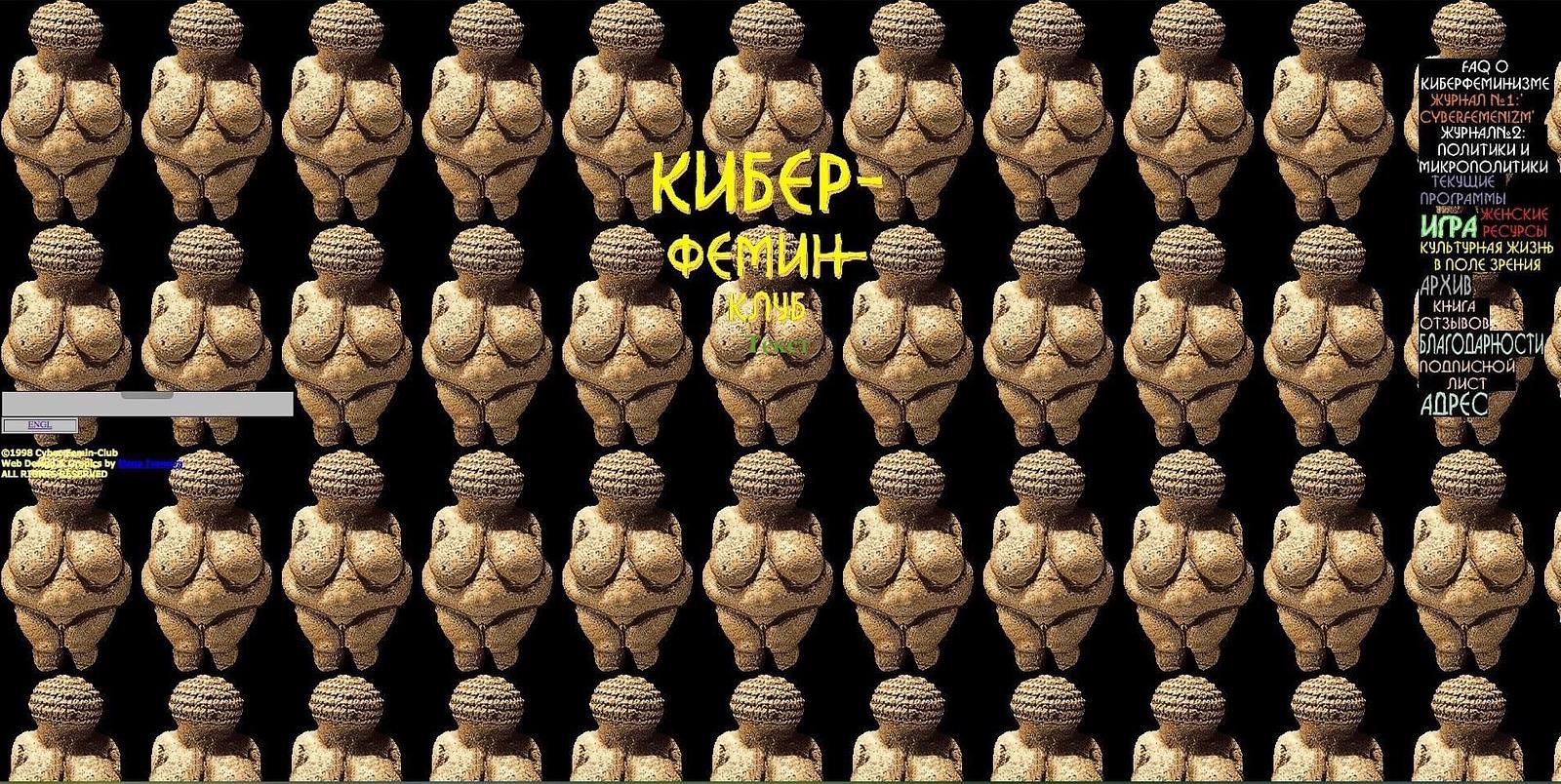
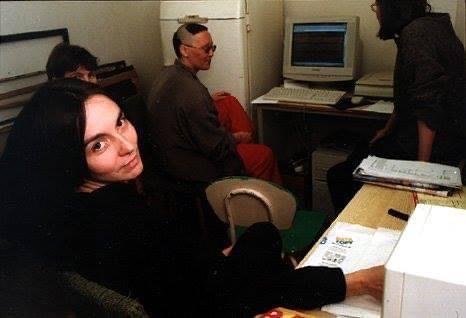
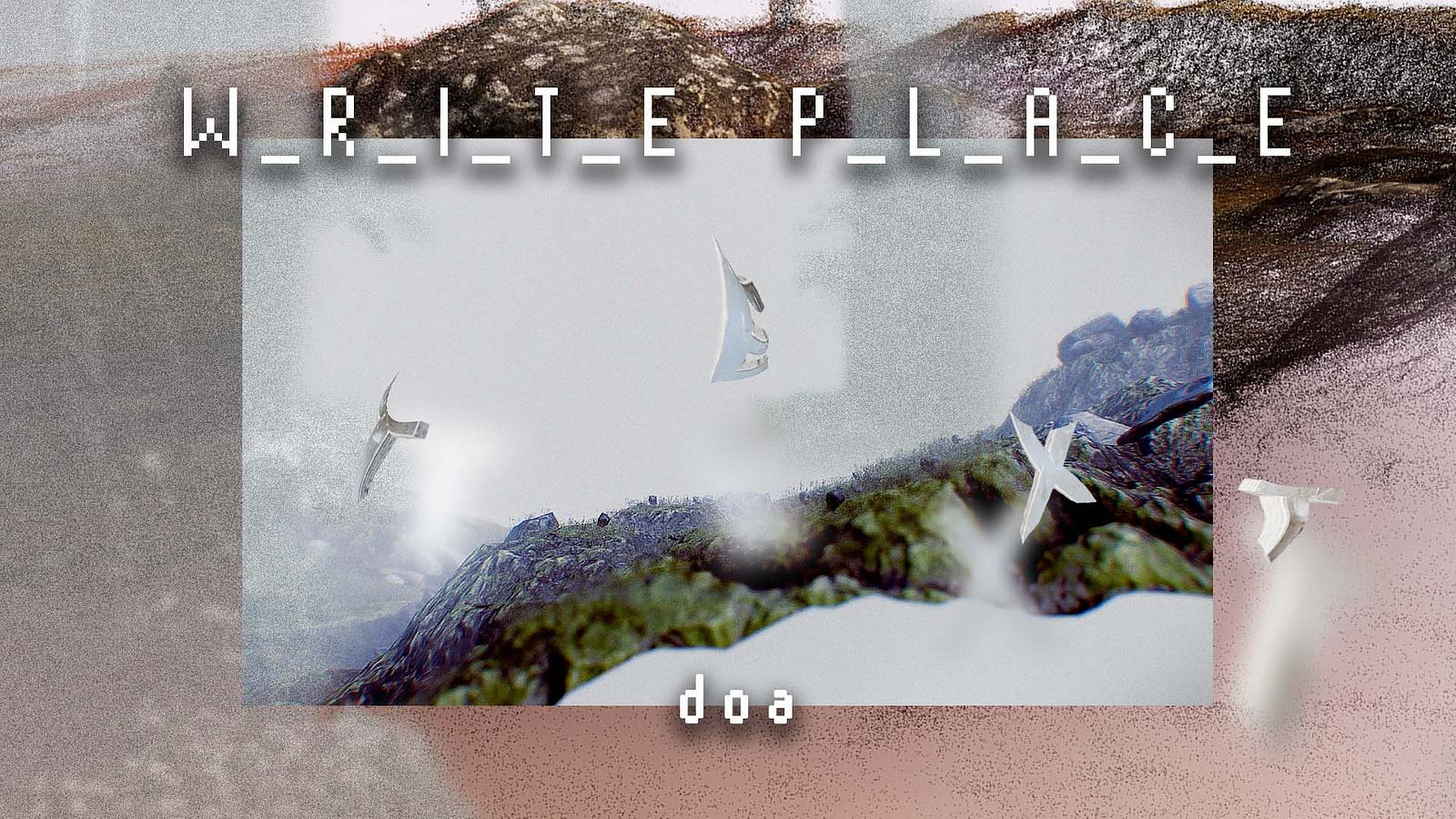
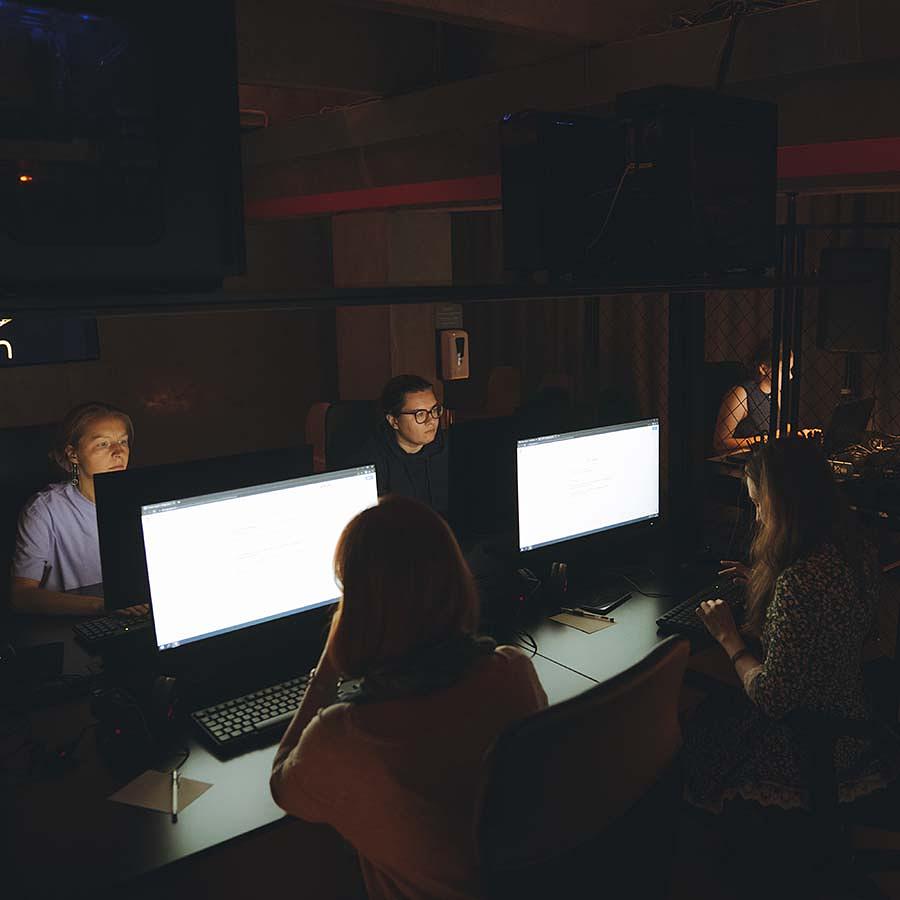
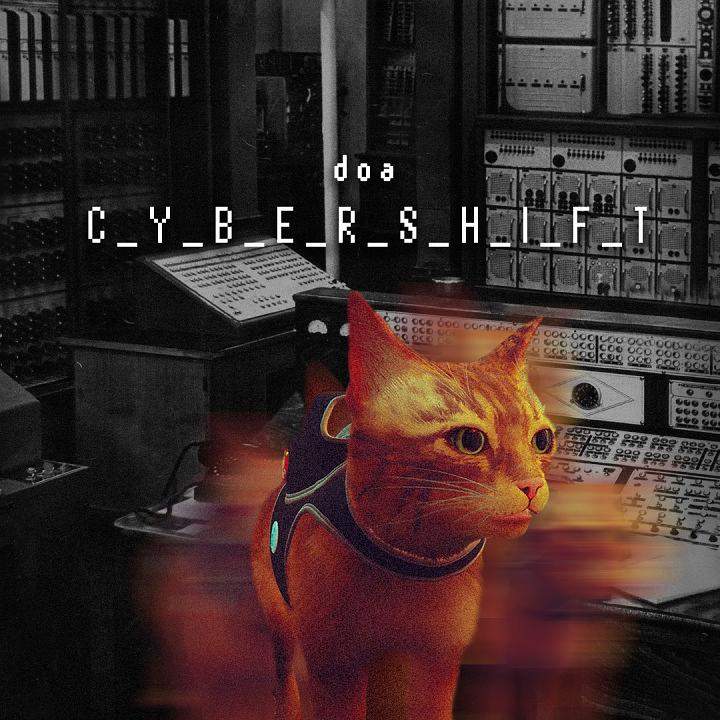
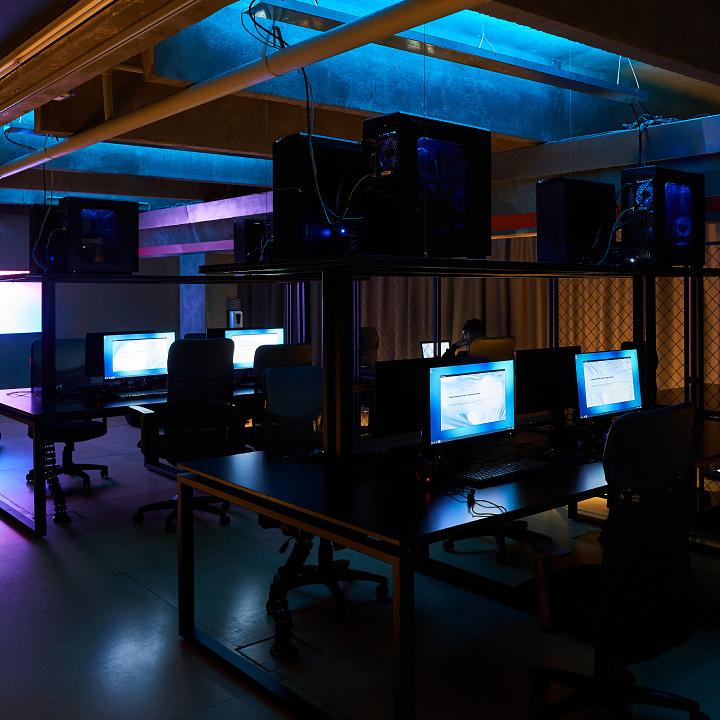
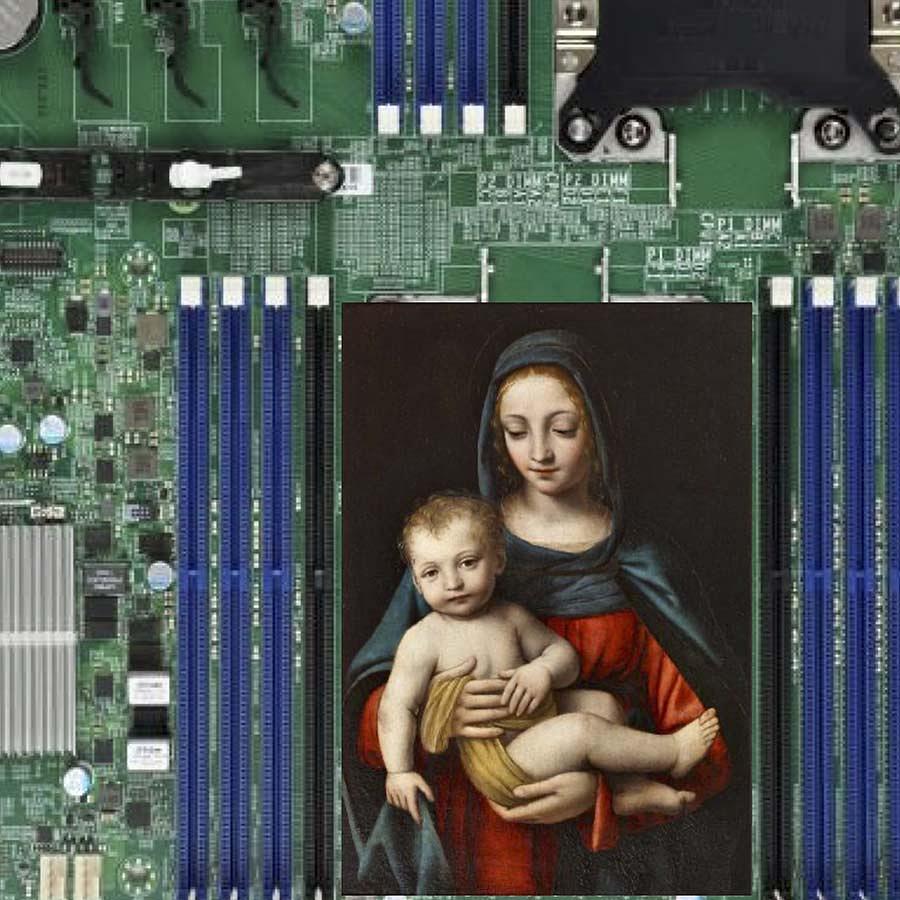
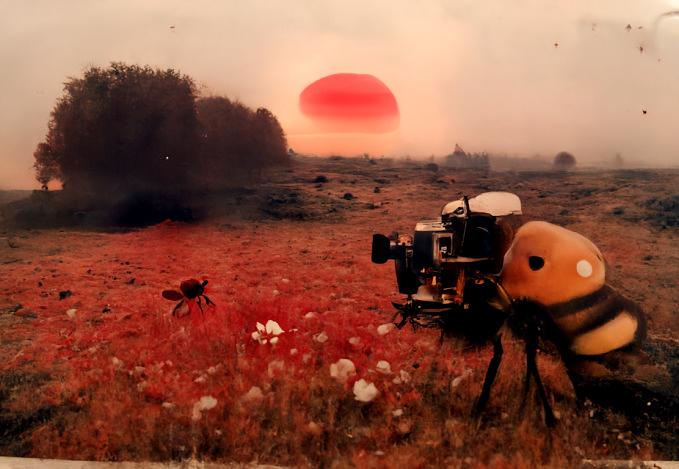
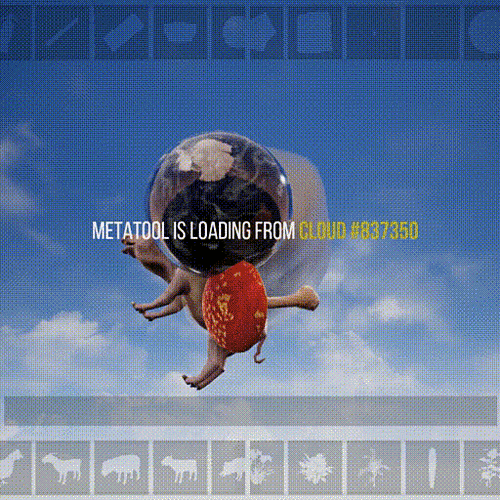
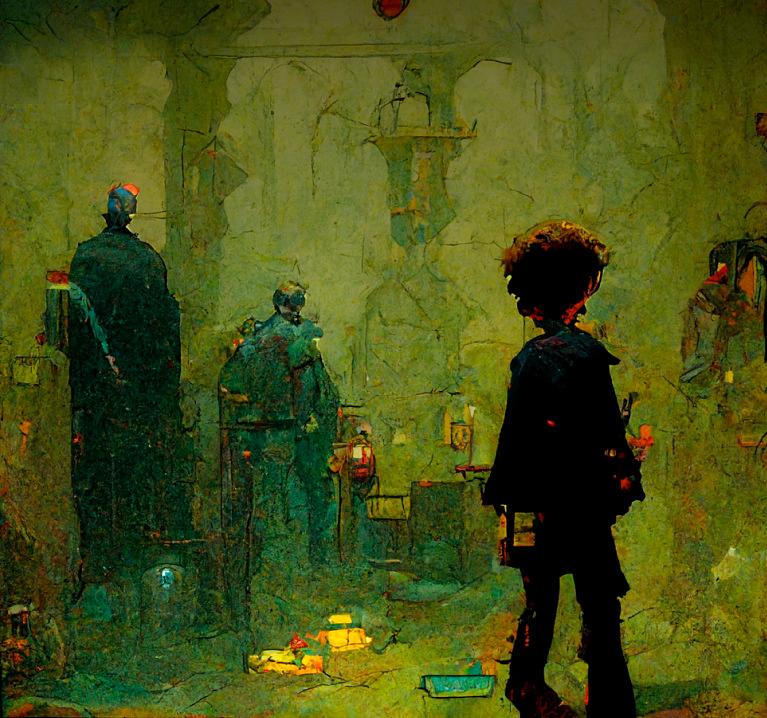
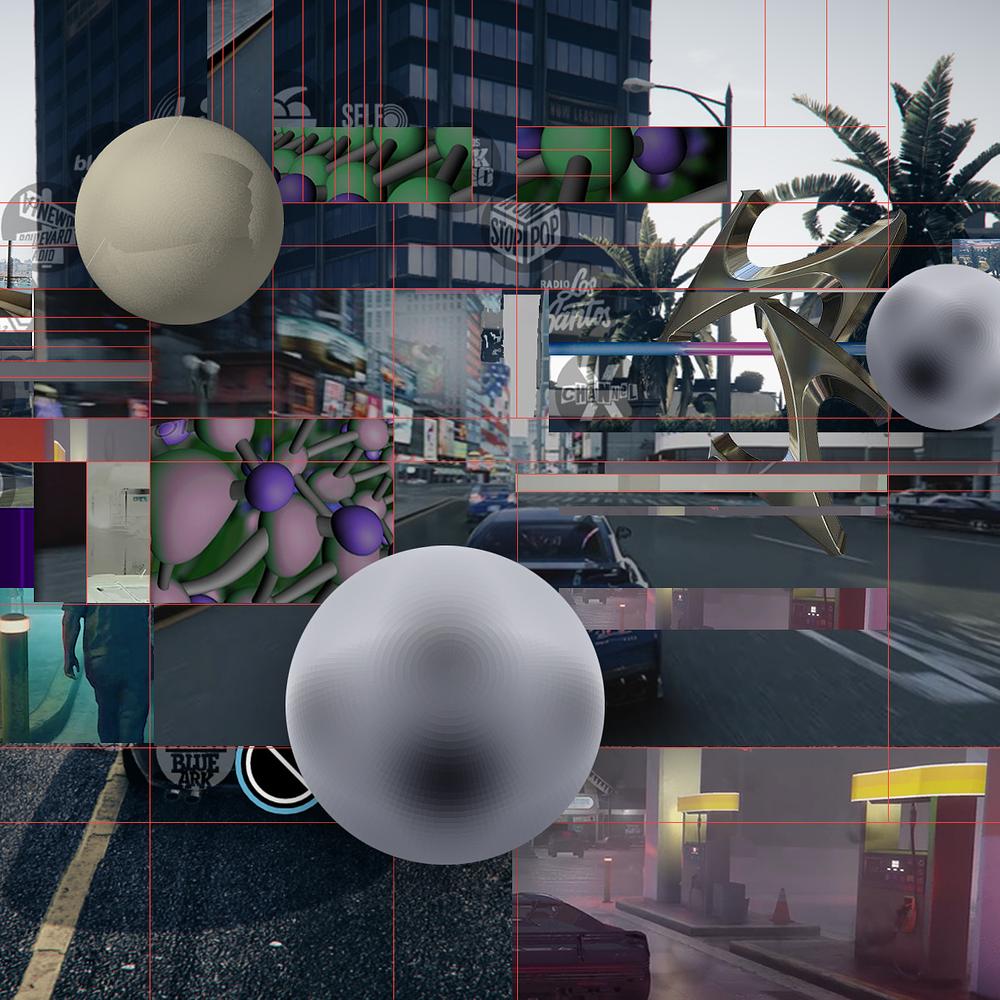
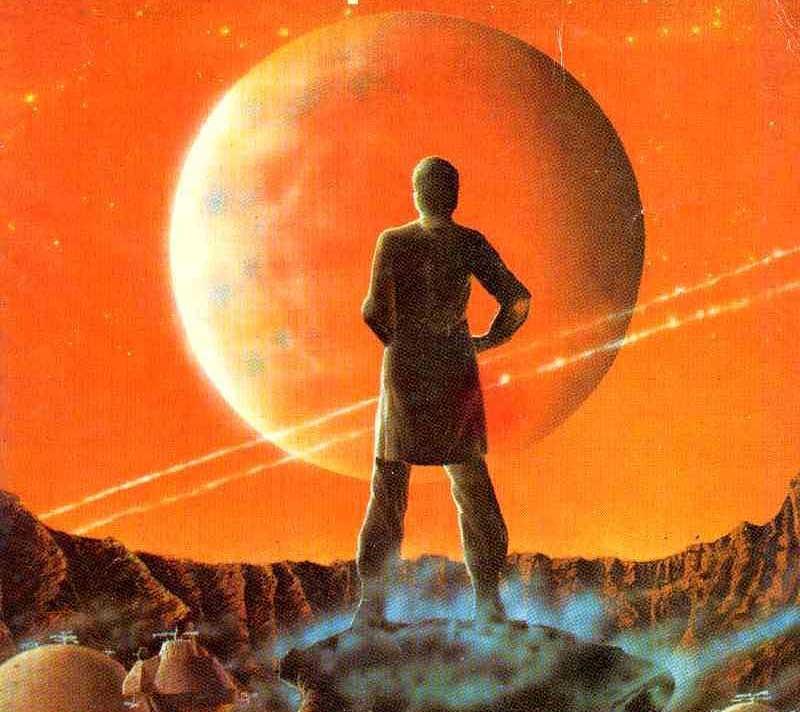
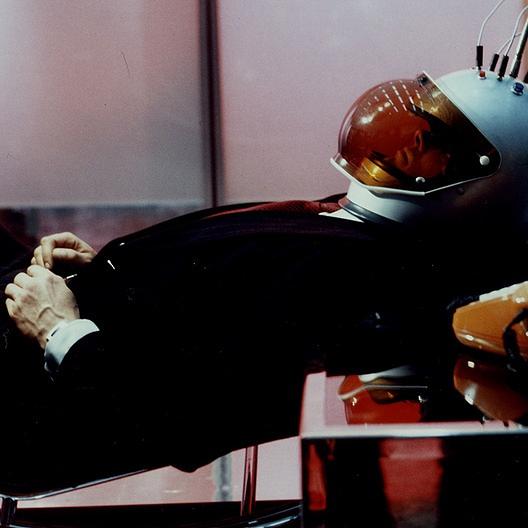
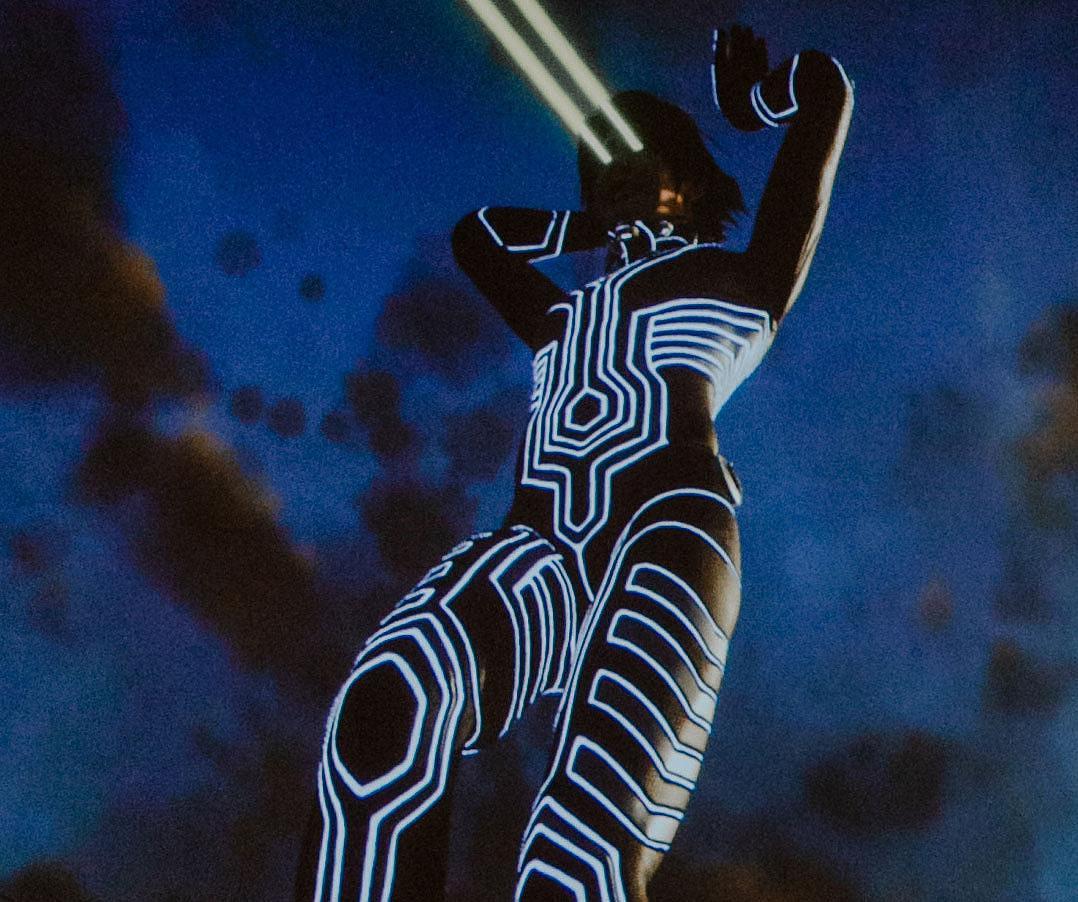
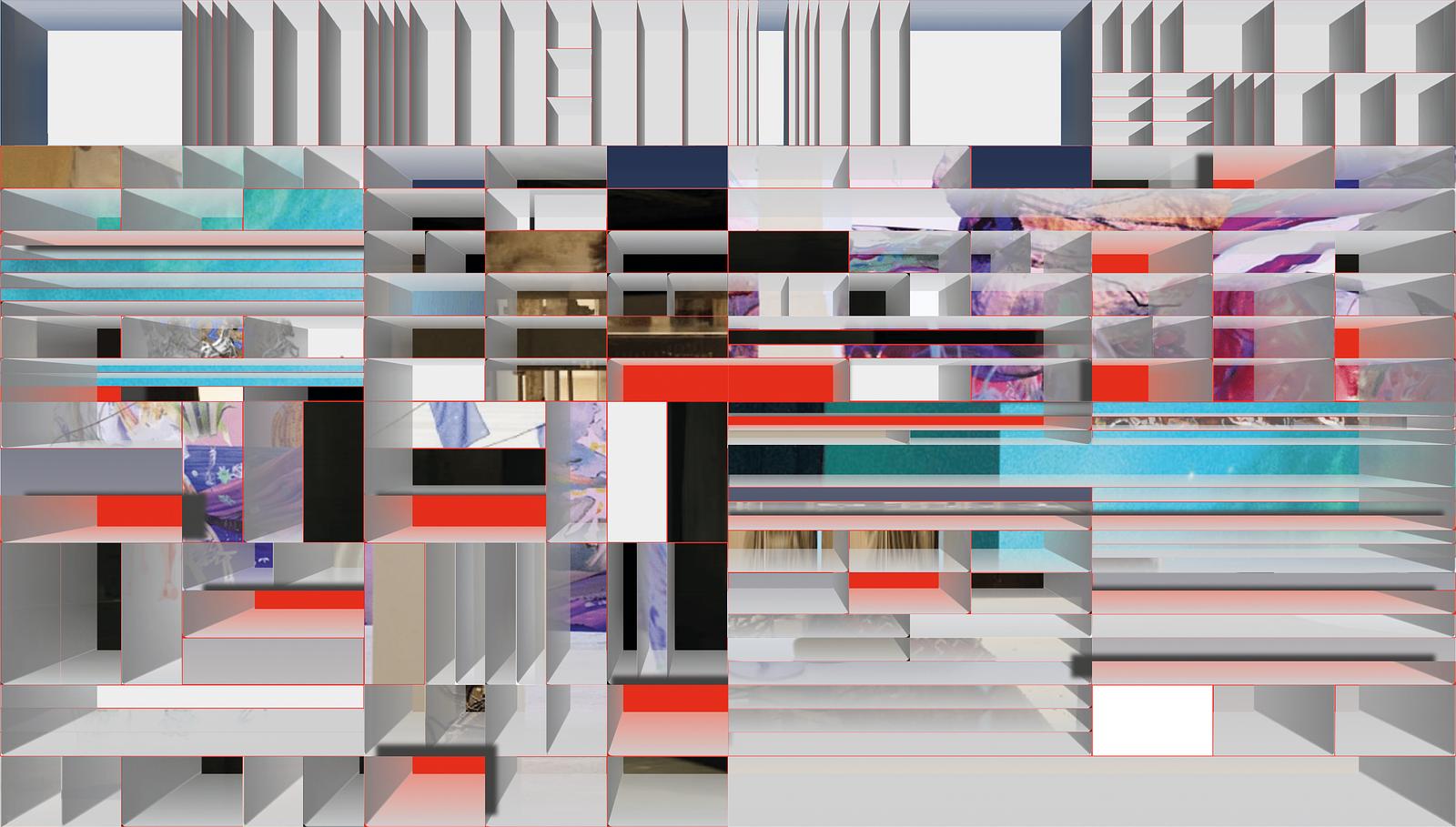
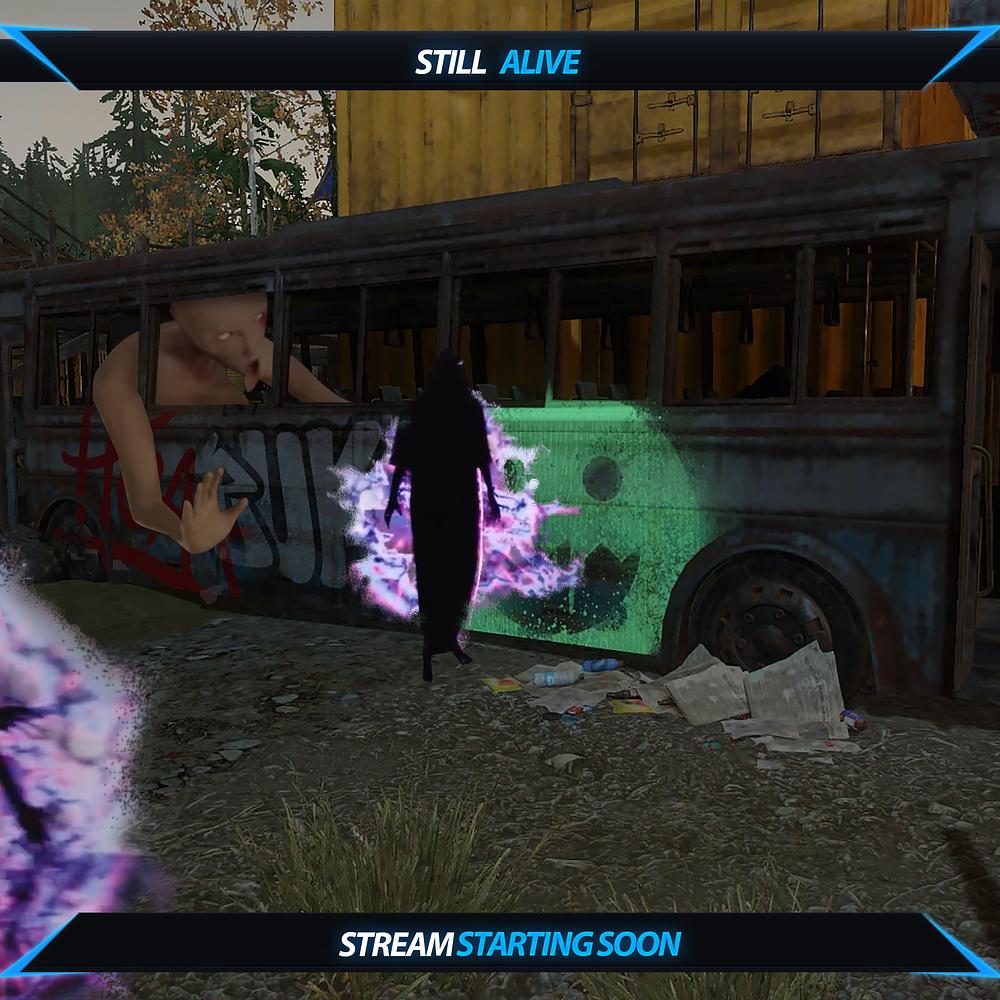
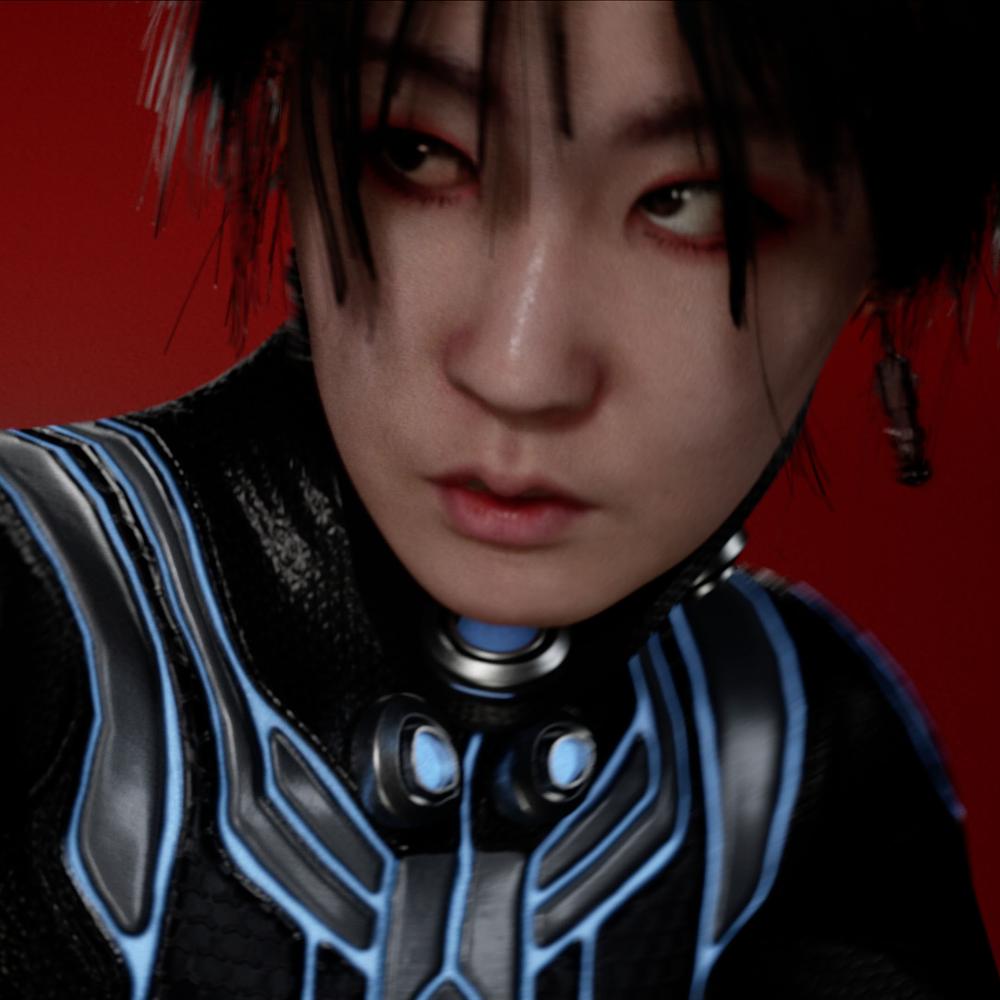
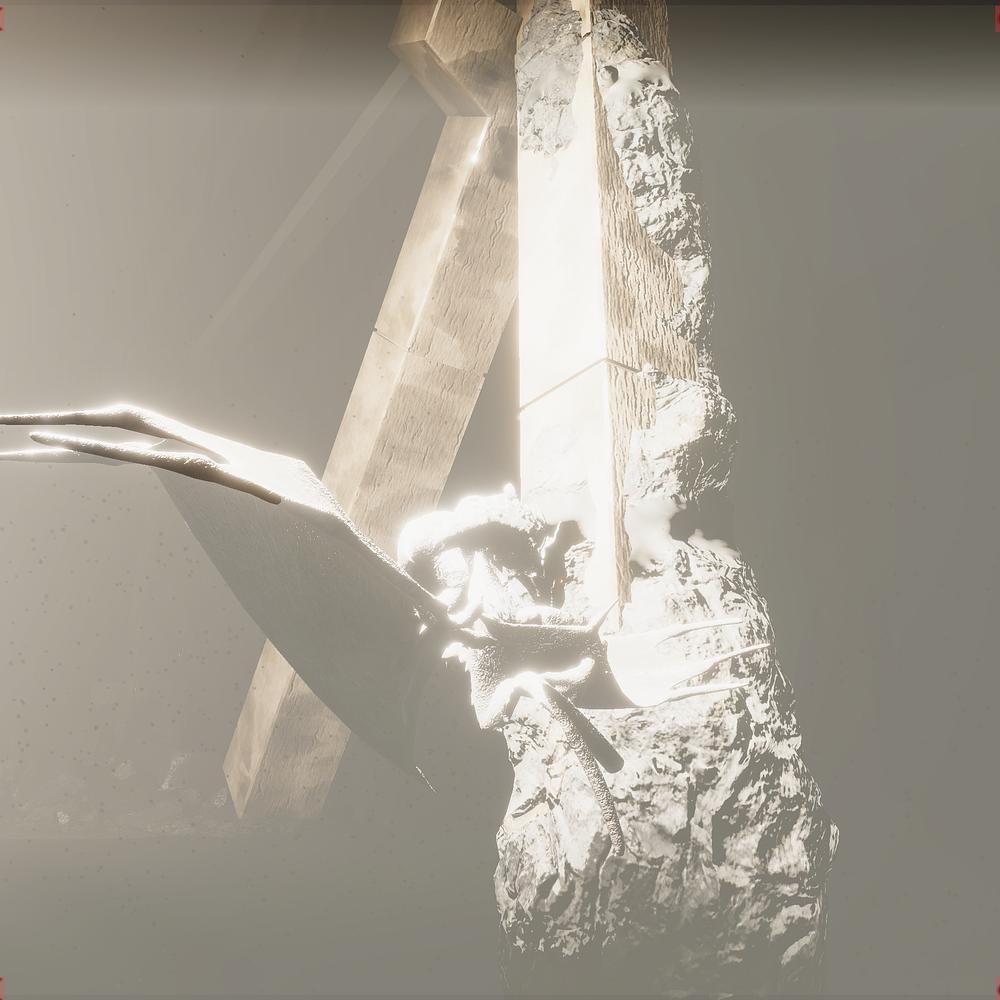

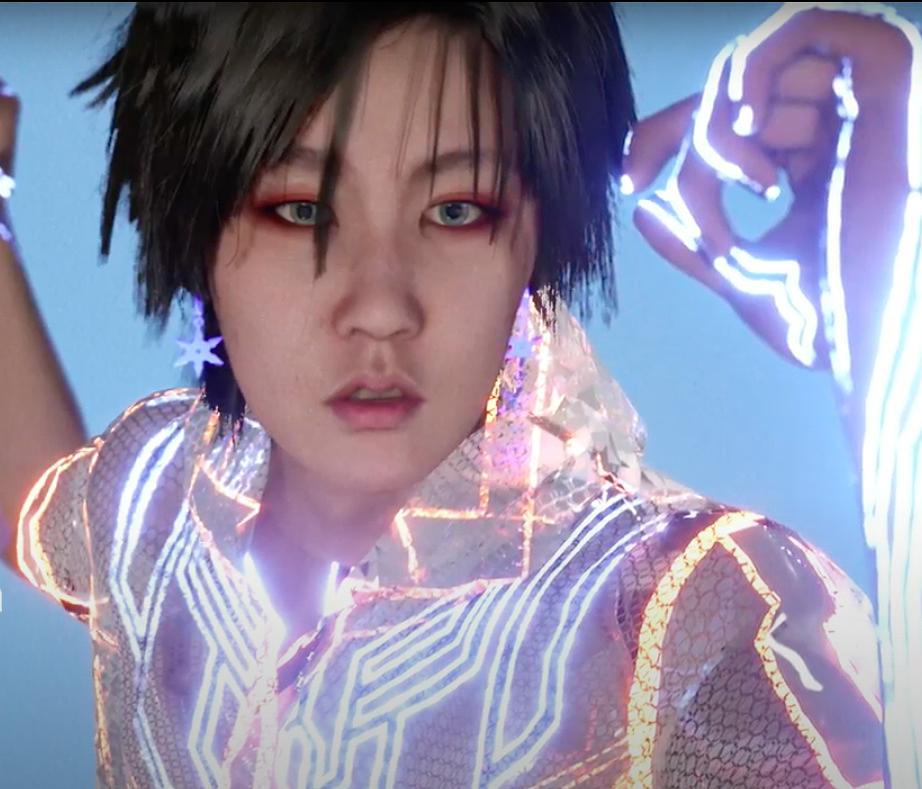
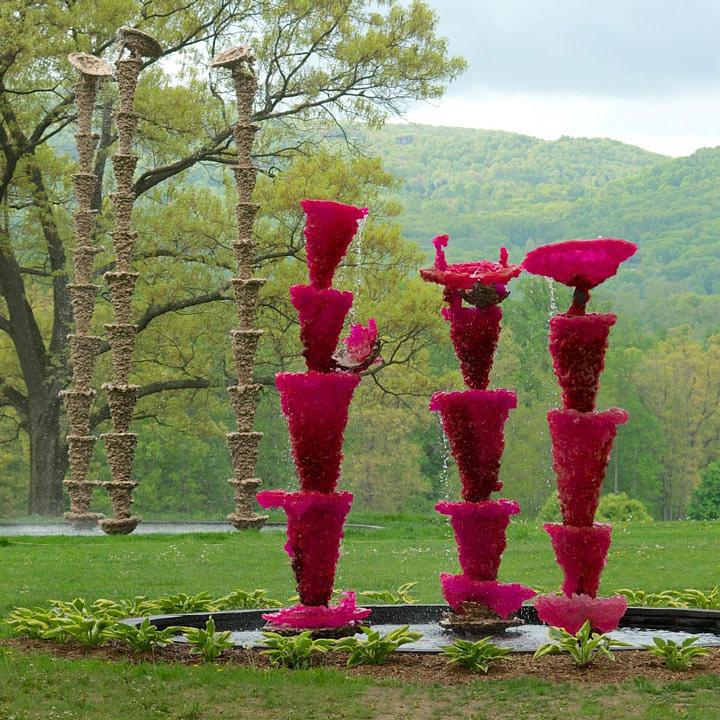
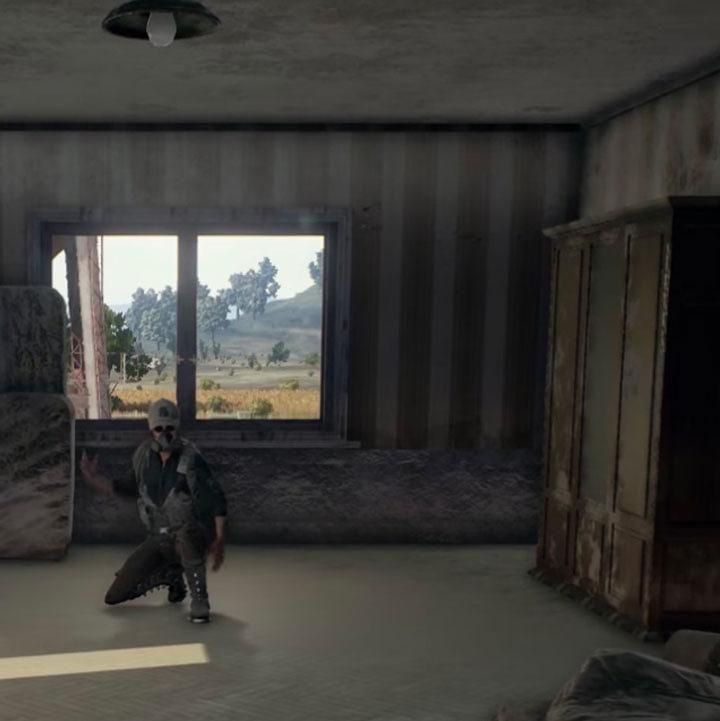
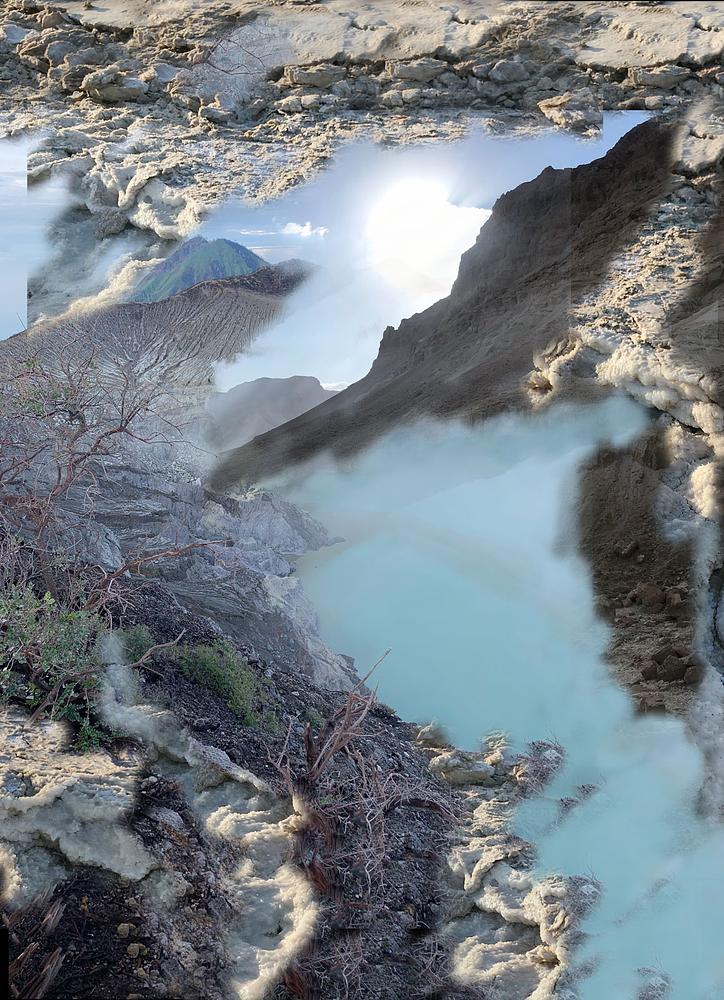
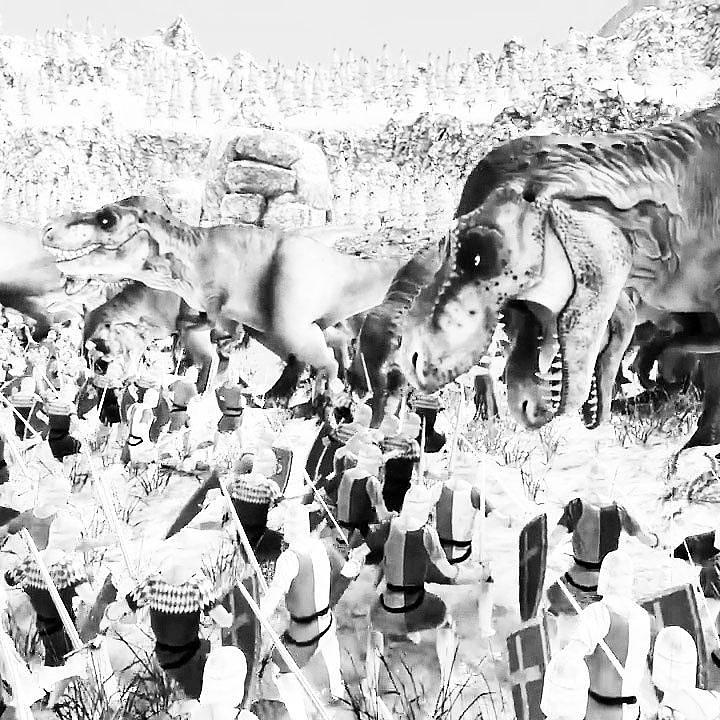
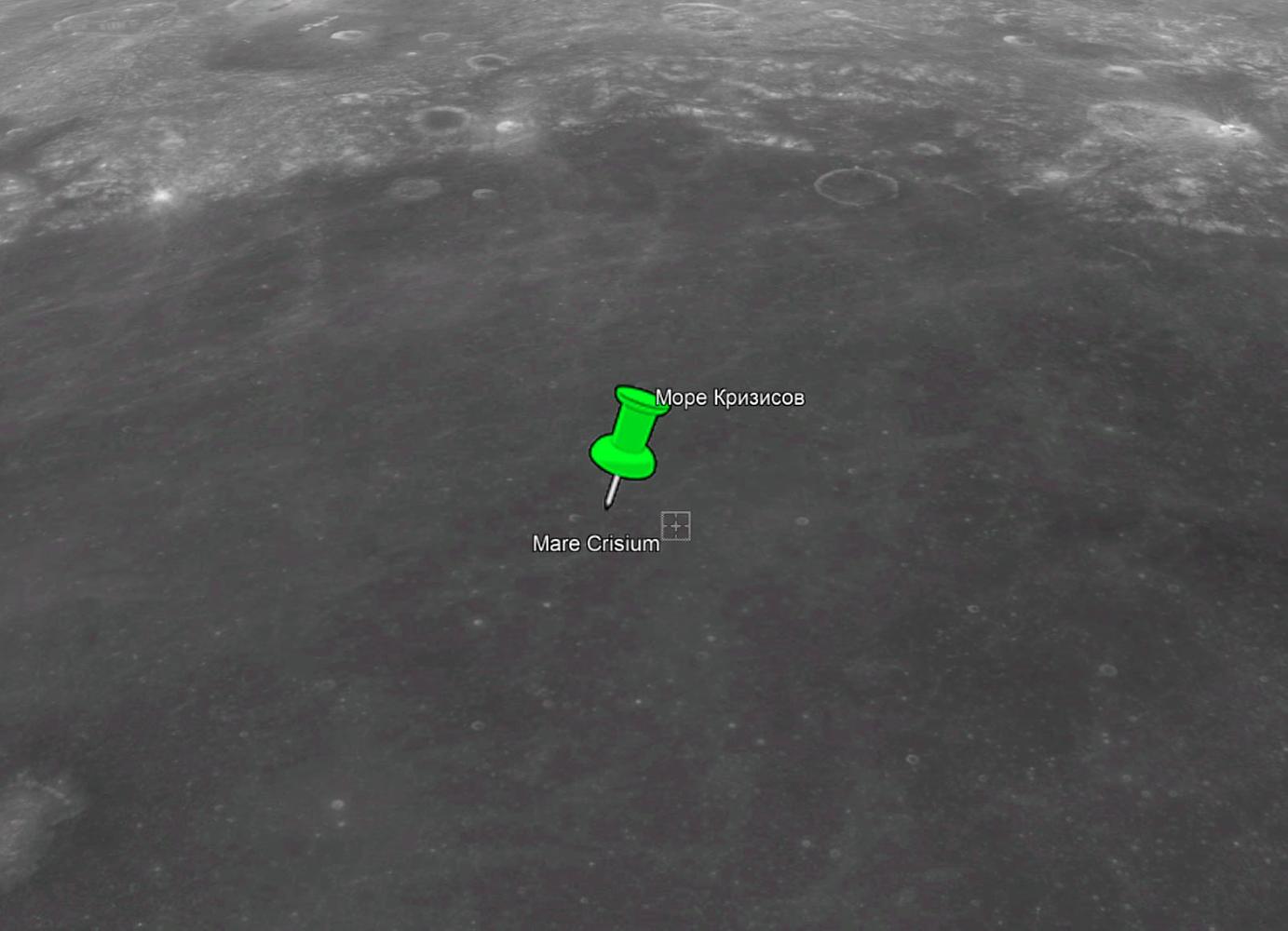
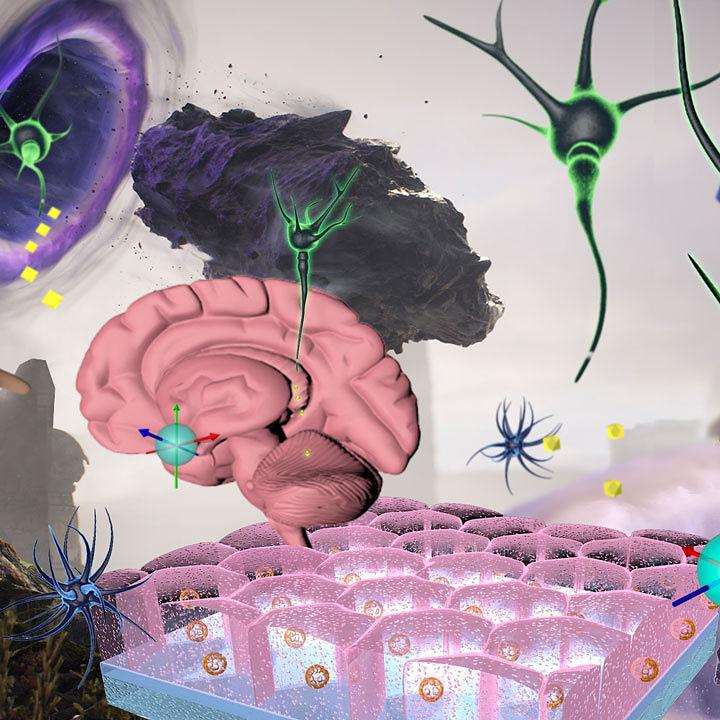
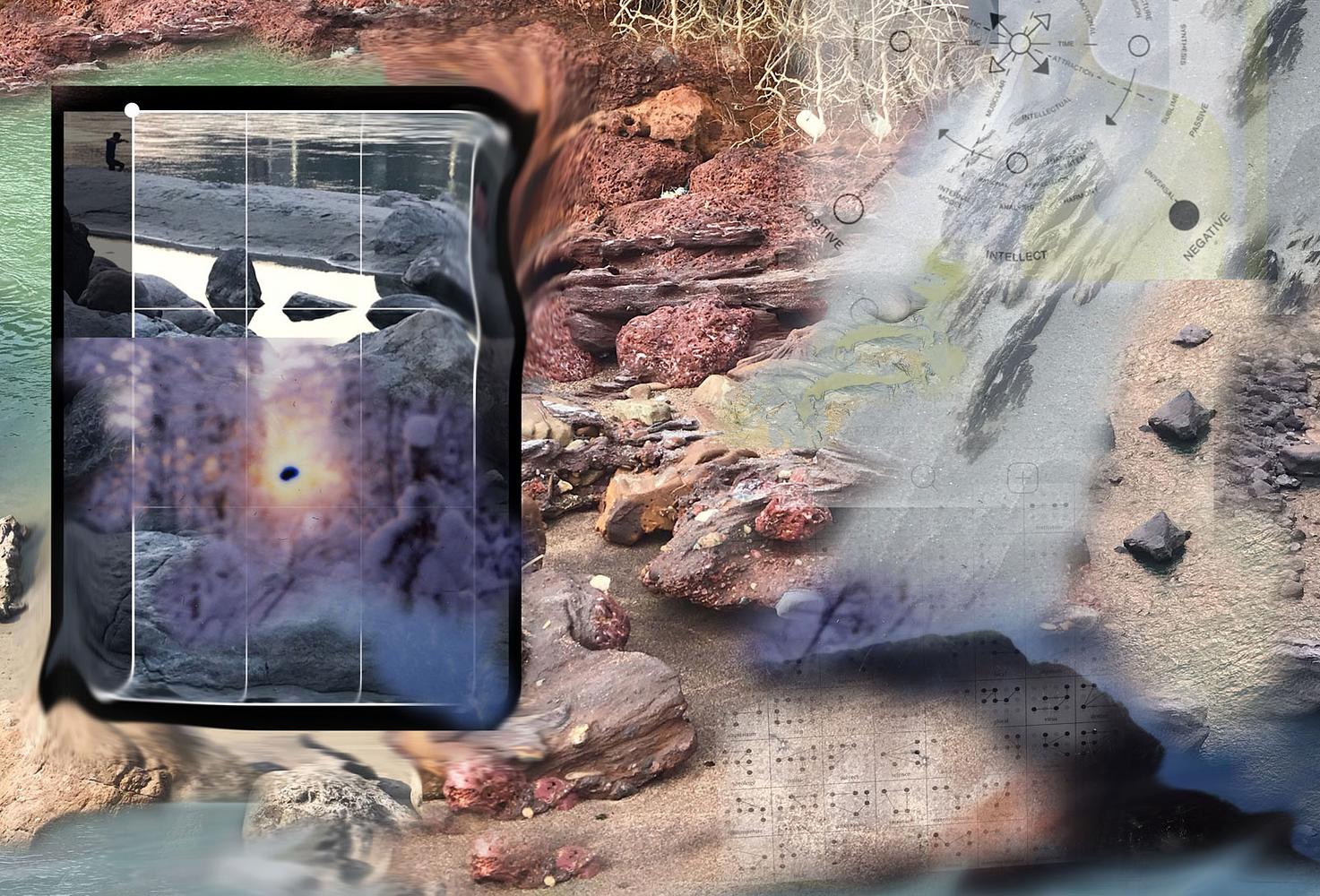
Addiction to Non-Becoming. Performance by Sofa Skidan
The artist, the music, and the space will act as mediators within the participants’ memory, guiding them along their own process of becoming in the context of the discussion of a digitalized world and encouraging them to try and understand how our brains and bodies register information. Participants will discuss the ways in which Internet reality becoming a daily routine has changed our psychophysical perception and whether we can become stalkers of our own consciousness.
Exploring the real world by the way of virtual worlds, we study neural networks, artificial intelligence, animals and the non-human. But what is happening to us in the meantime? Technological changes affect biological transformations. Our brain constantly regenerates, which means it constantly recreates and re-works our memories. In that sense, we have no “authentic” memory. But we can return to reality through perception and adaptation. We can practice the present—not through resistance, but through observation, distancing ourselves and assuming a neutral position. How do we open up the gap between spiritual practices, occult materialism, and the virtual world?
The event will be of relevance to visitors interested in post-Internet environments, Eastern practices, technogenic culture, body- and mindfulness-centred practices, and studying the breaches between intellectual and physiological cross-disciplinary approaches.
Sound art by Fyodor Pavutnitsky
Works in various media, including installation, performance, sculpture, and video. She studied at Saint Petersburg University of Film and Television and Rodchenko Art School in Moscow. She is an artist, as well as a professional yoga teacher, and works with materials, techniques, and narratives that connect Eastern spiritual practices and contemporary critical theory to reflect the complex issues of postmodernity. Skidan explores new ways of understanding identities informed by the technogenic culture, the crisis of nature and the looming point of no return in the ecological instability of the Anthropocene. She makes site-specific projects using post-digital artefacts and with elements of nostalgia for the lost natural landscape.
